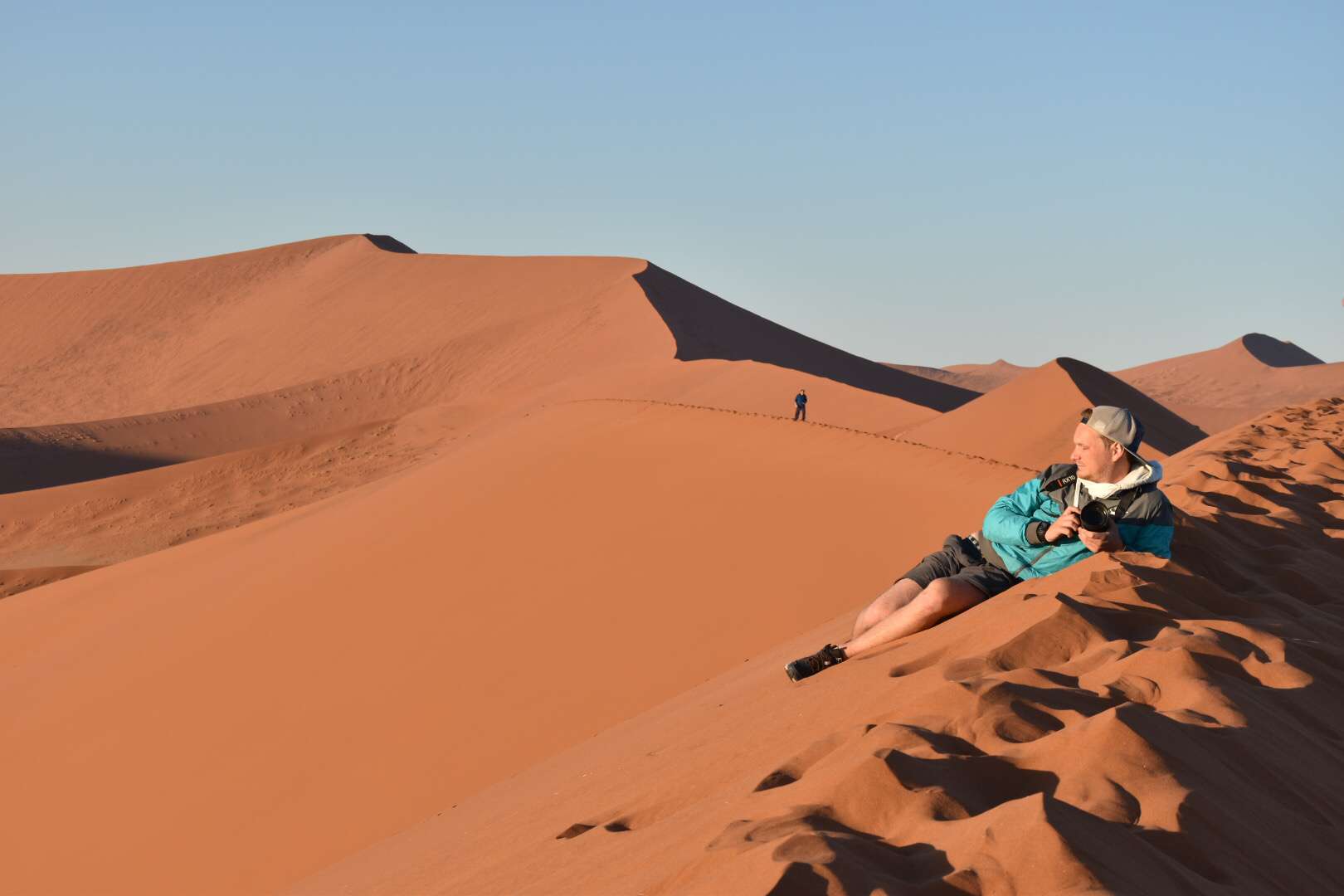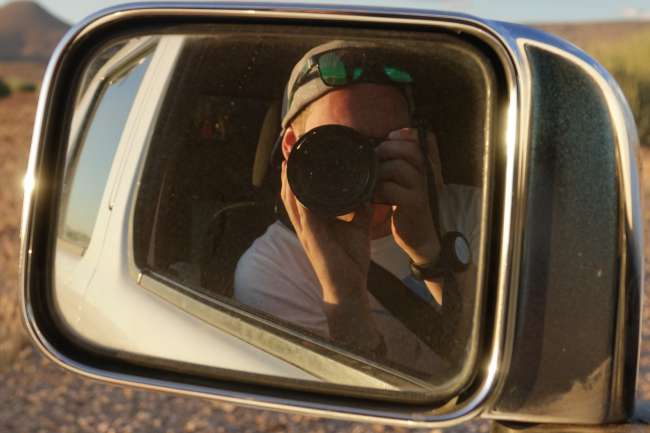Day 239 Inlay Lake
Lolomiina: 10.12.2017
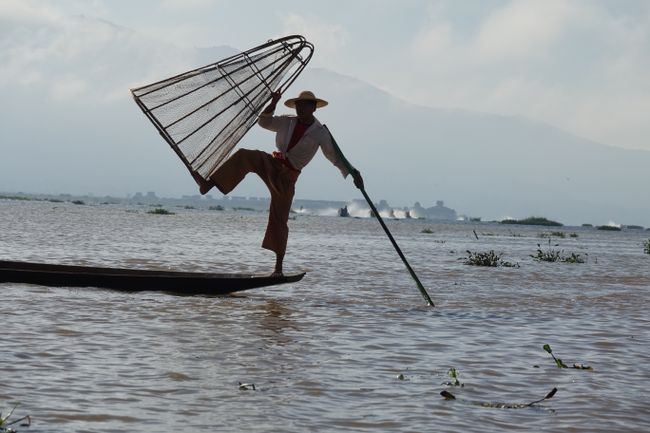
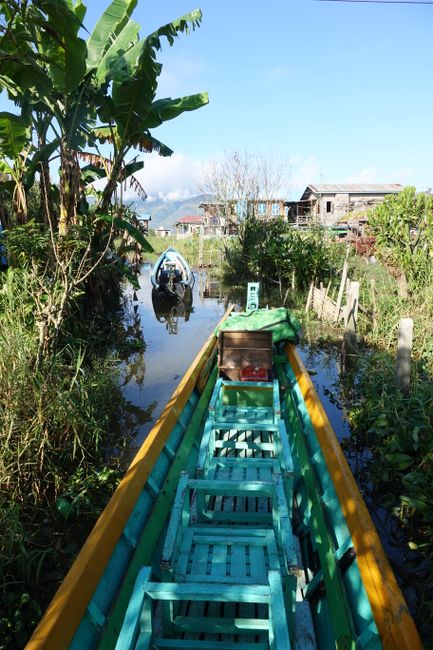
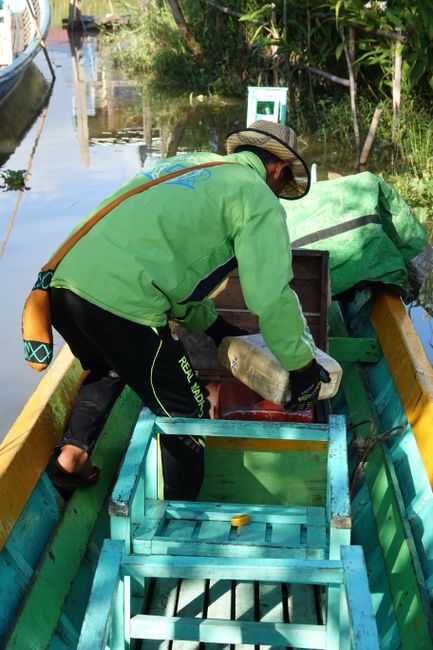
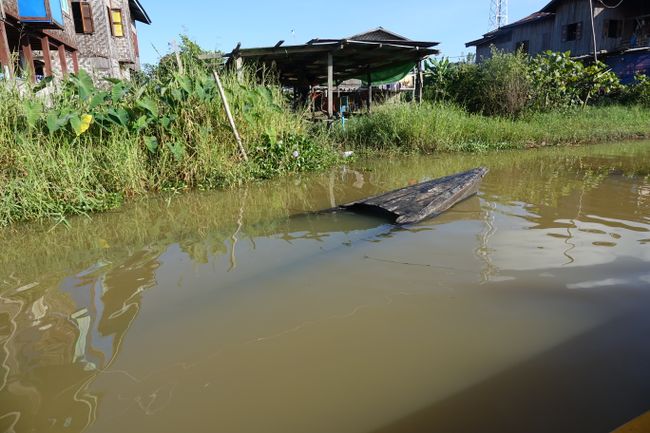
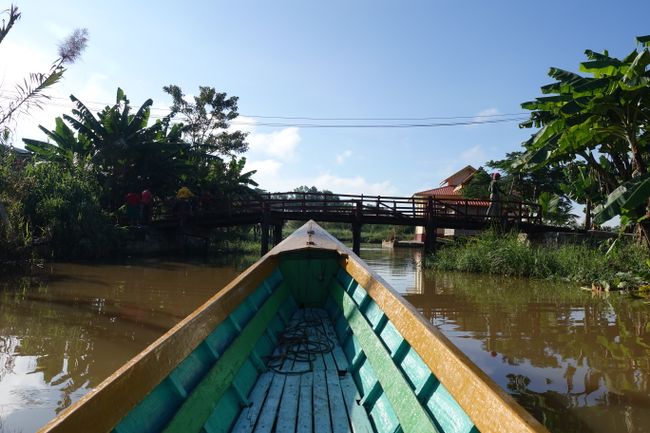
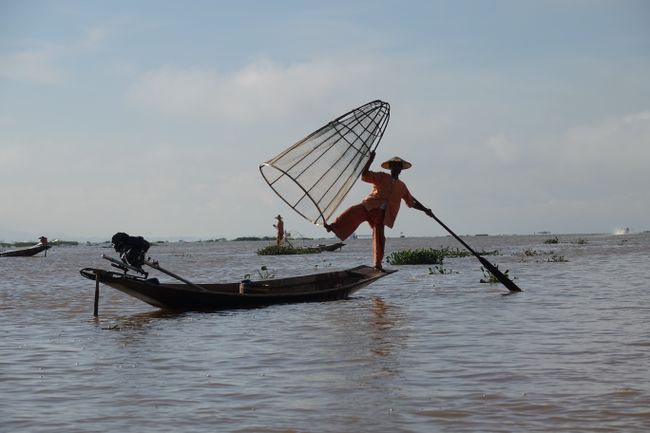
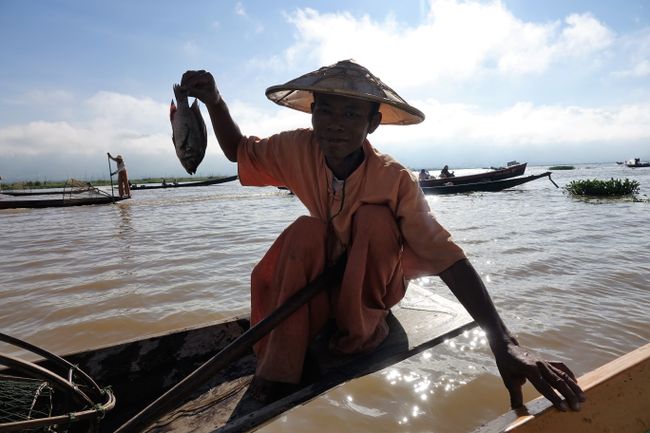
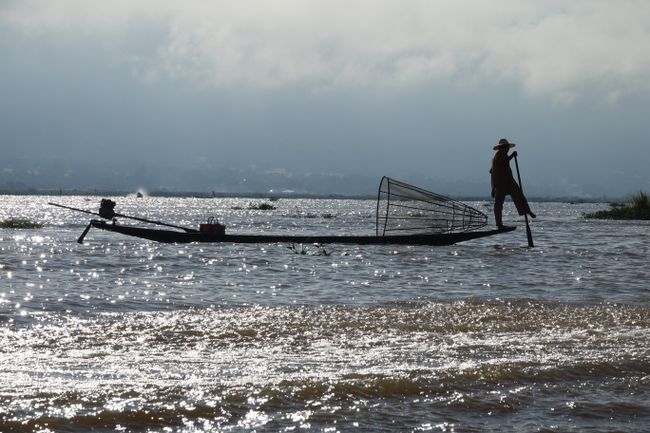
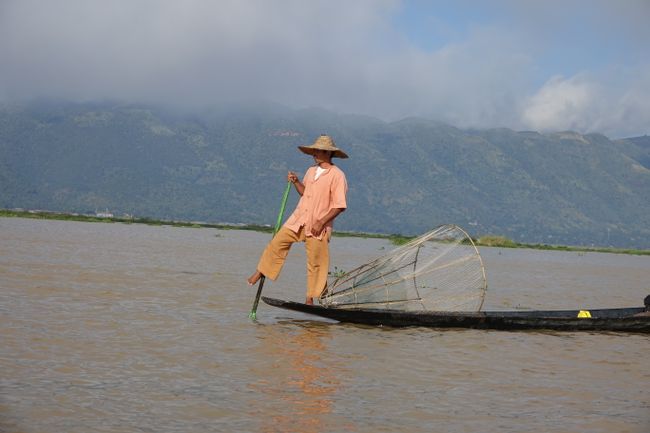
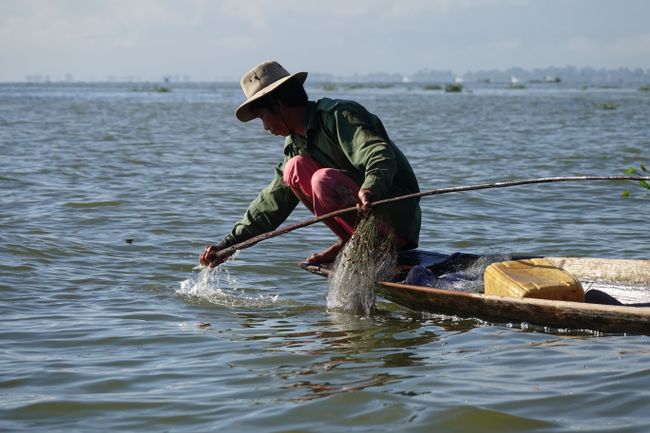
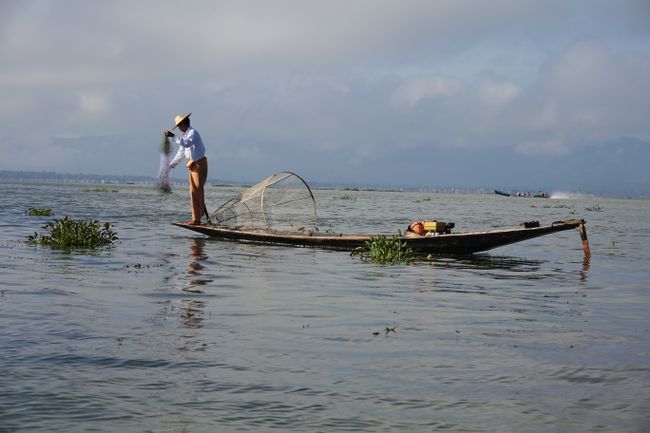
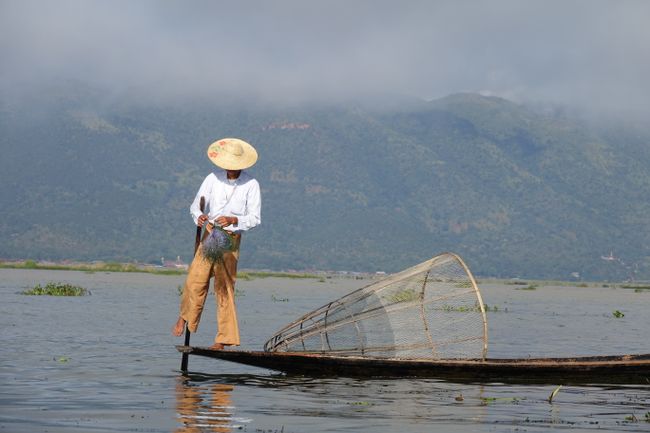
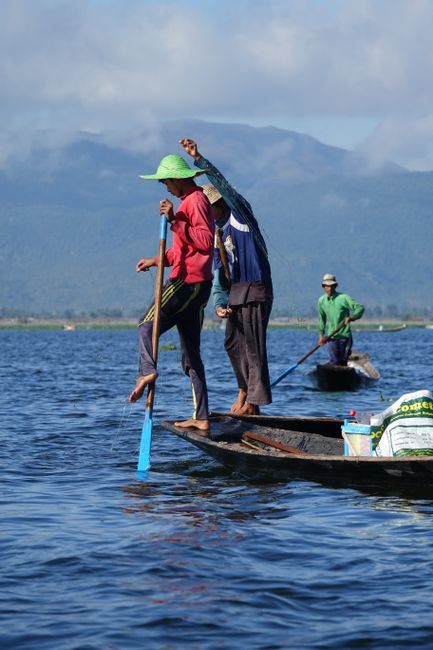
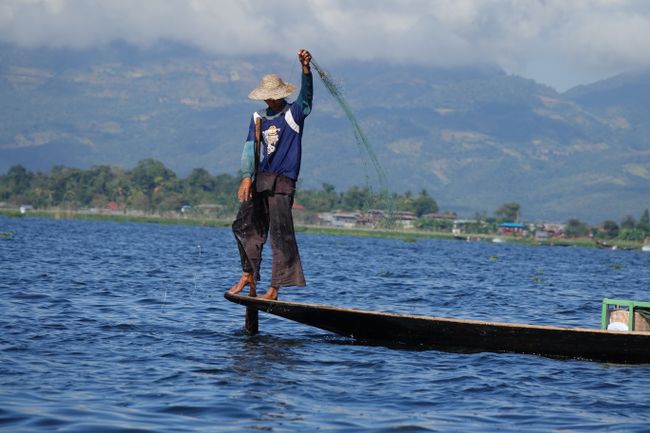
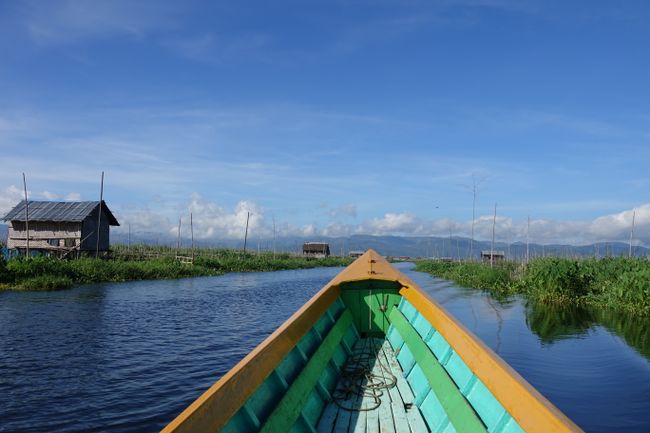
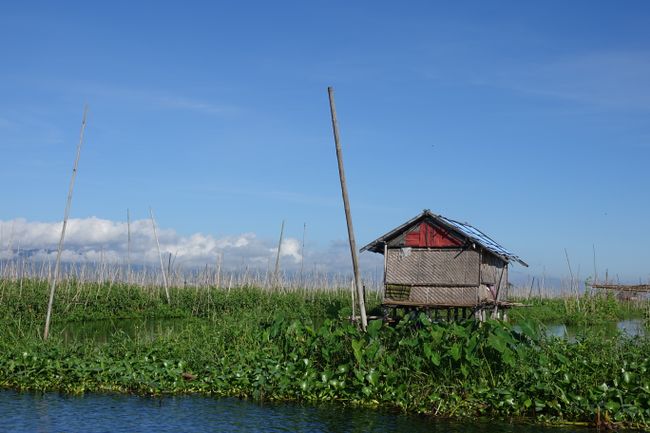
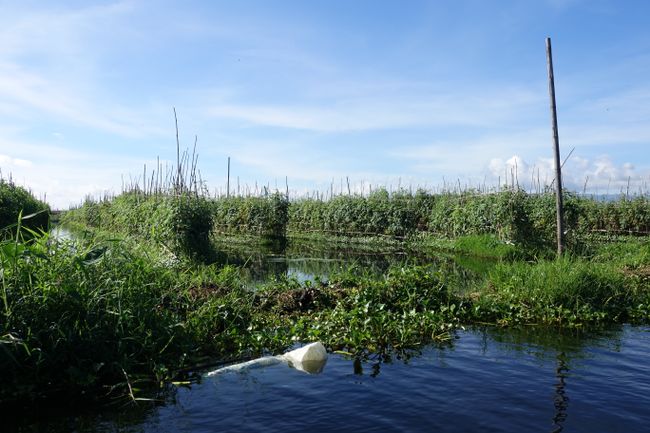
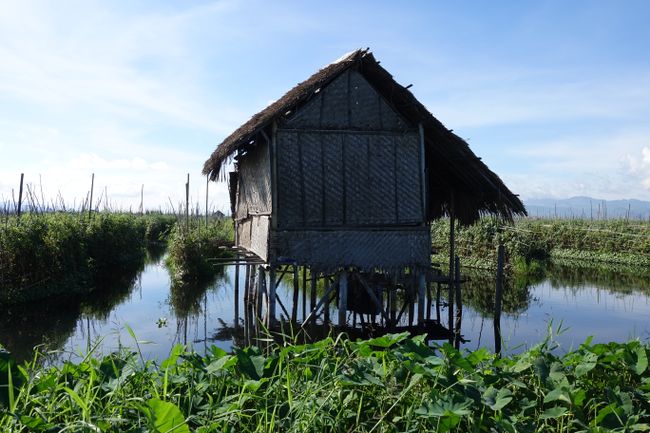
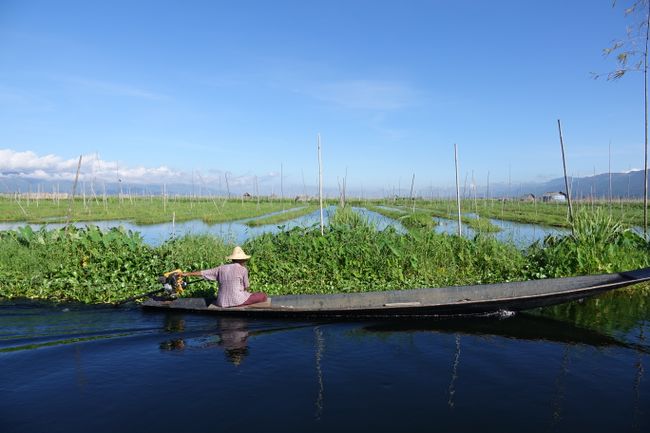
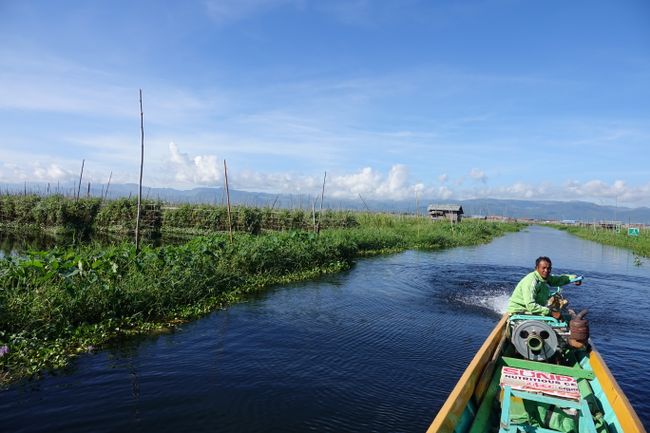
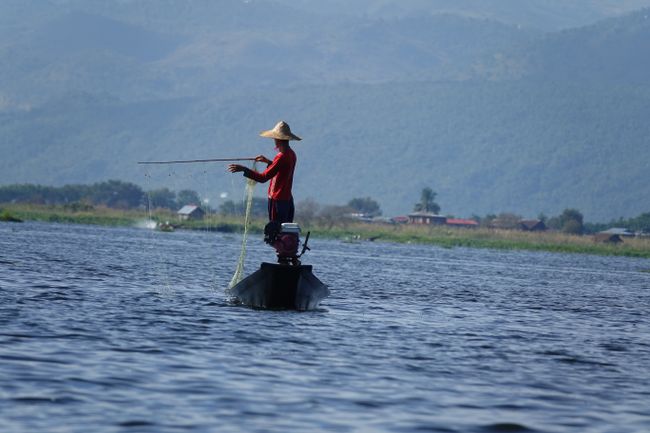
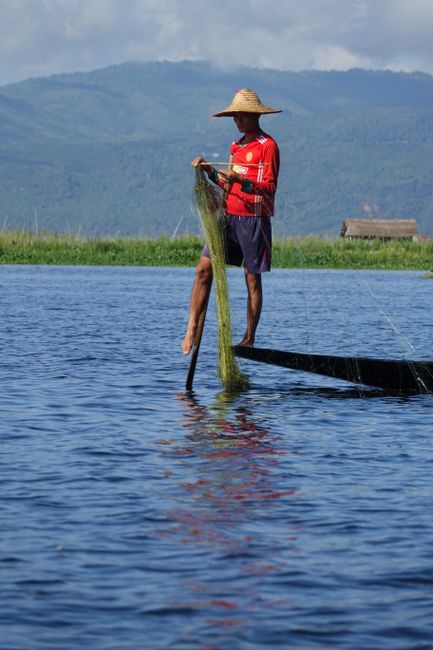
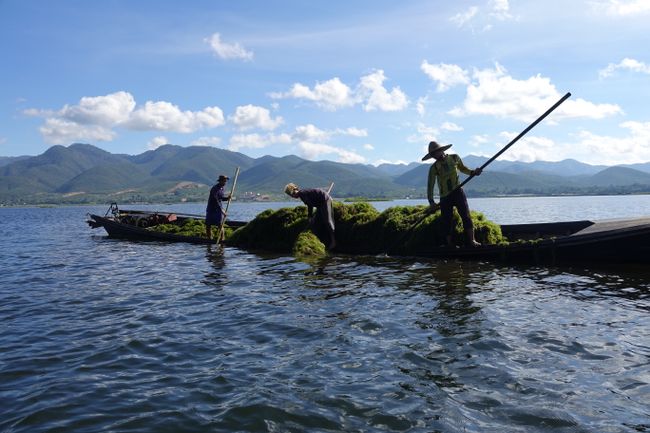
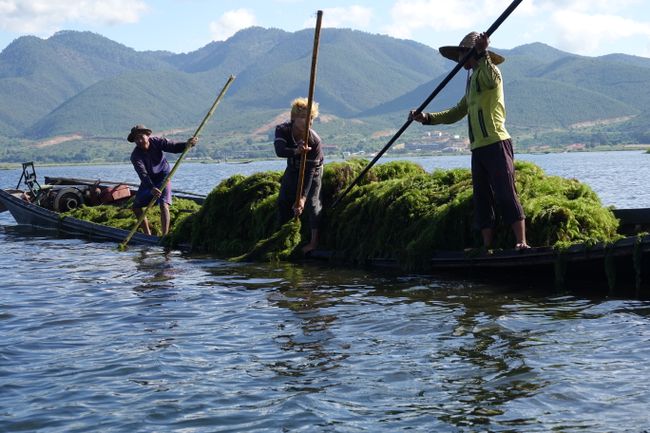
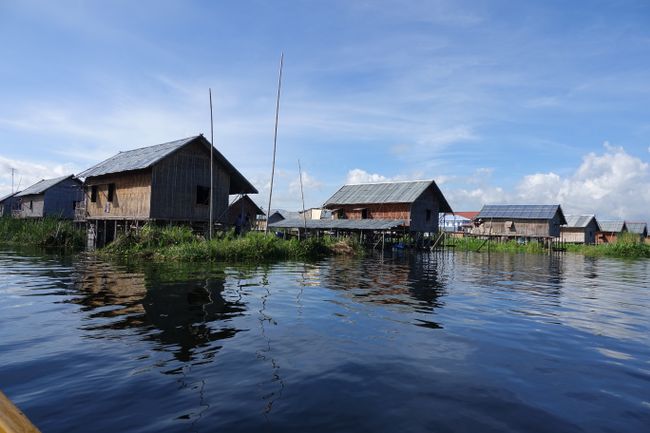
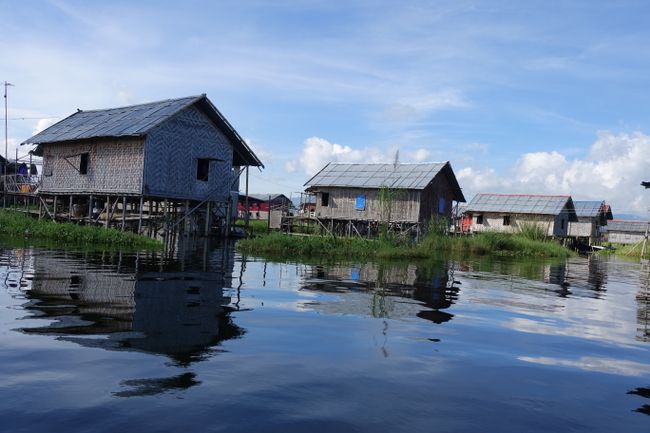
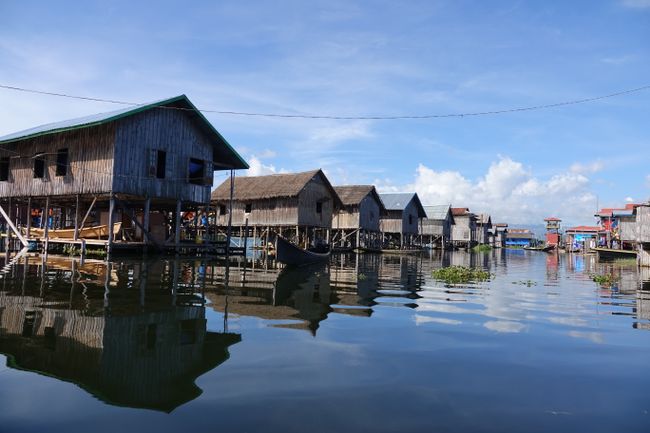
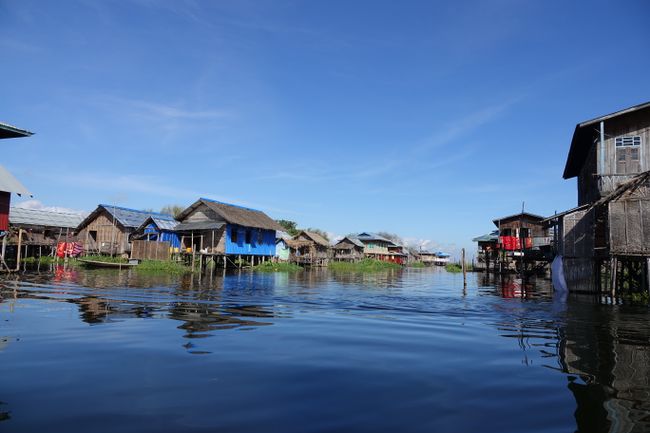
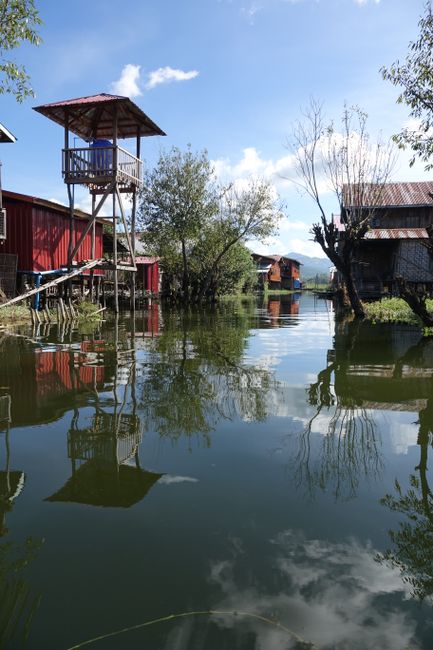
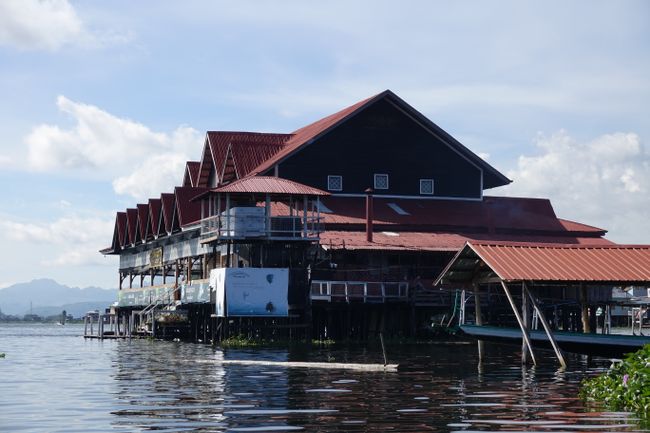
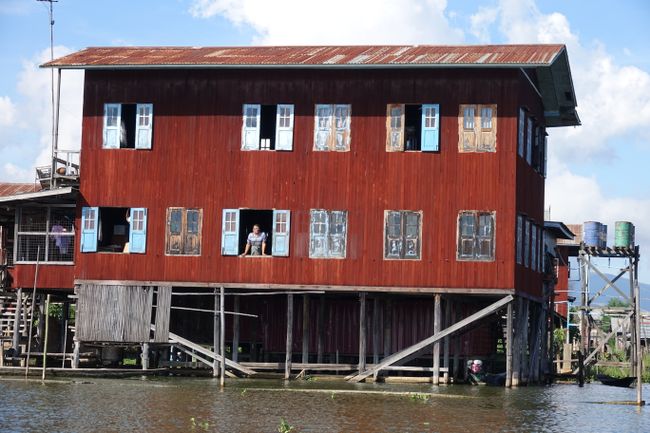
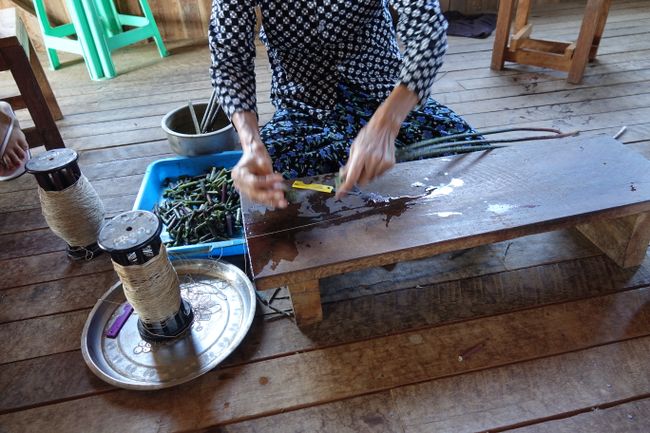
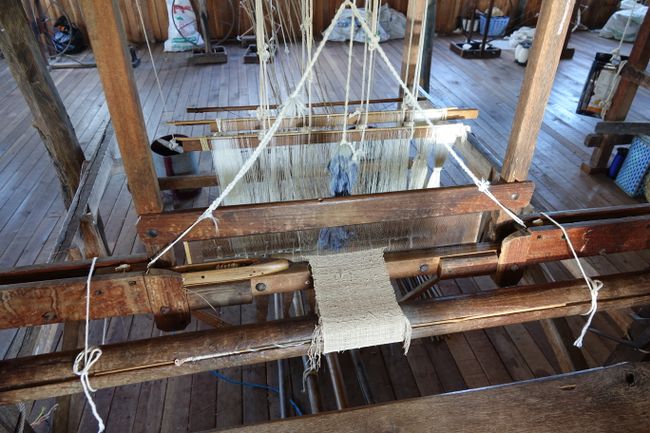
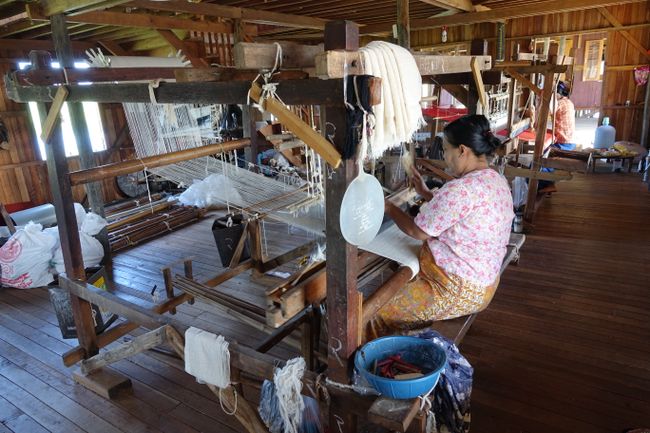
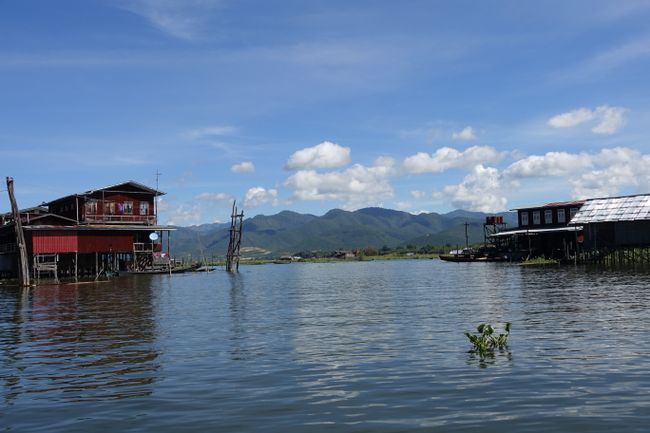
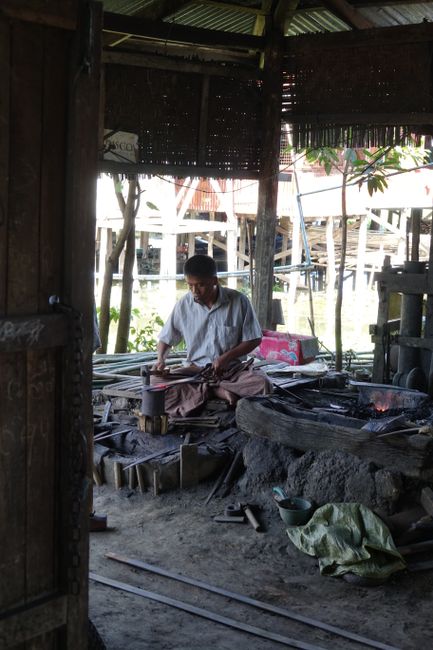
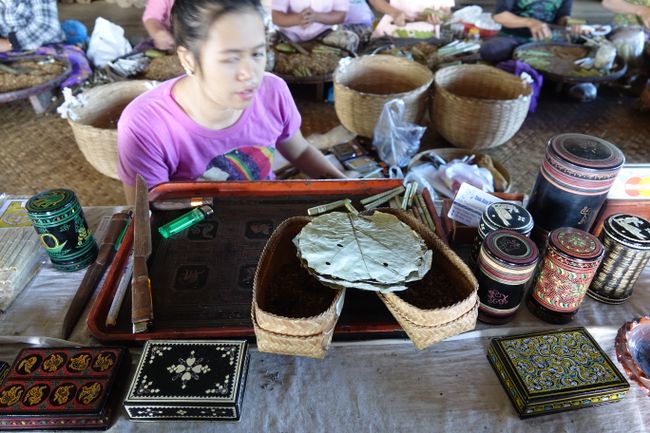
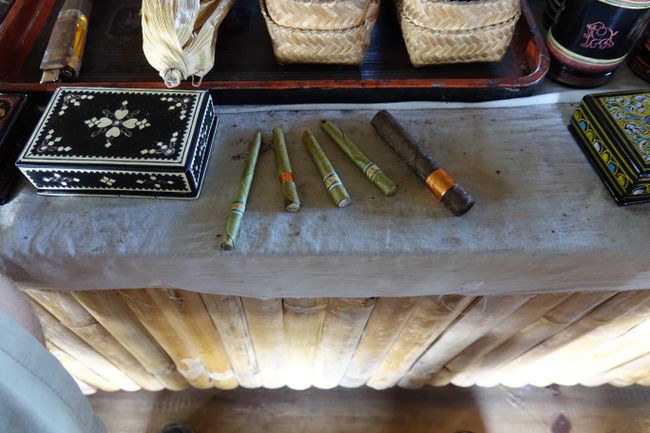
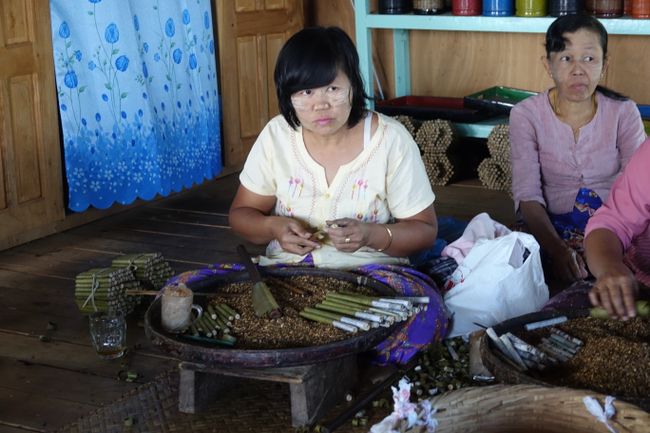
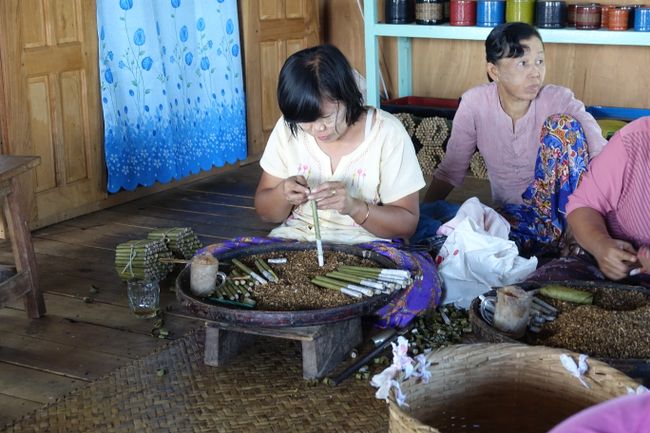
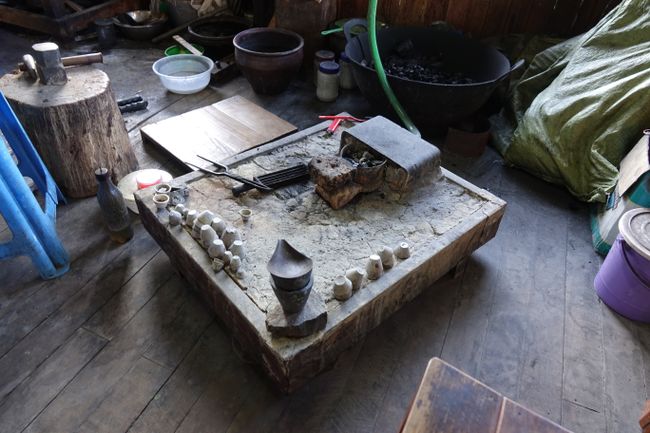
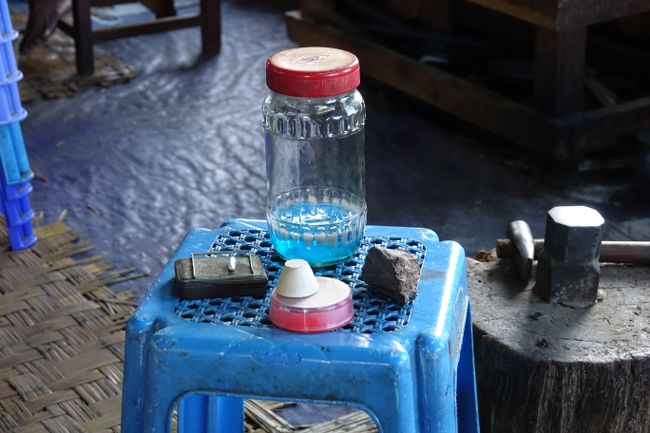
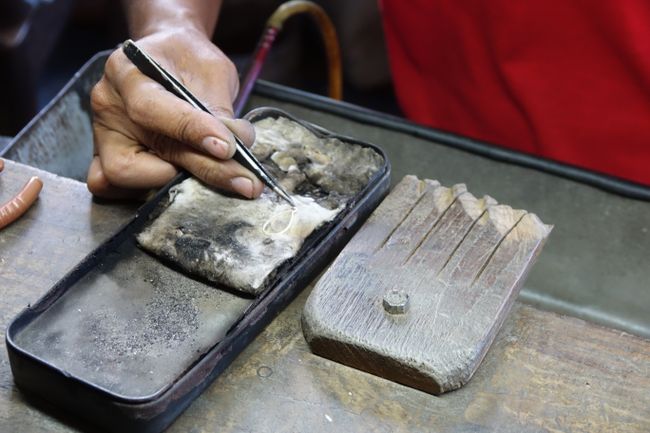
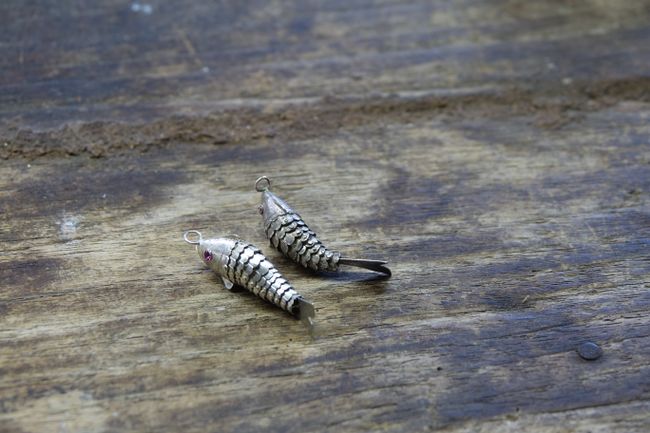
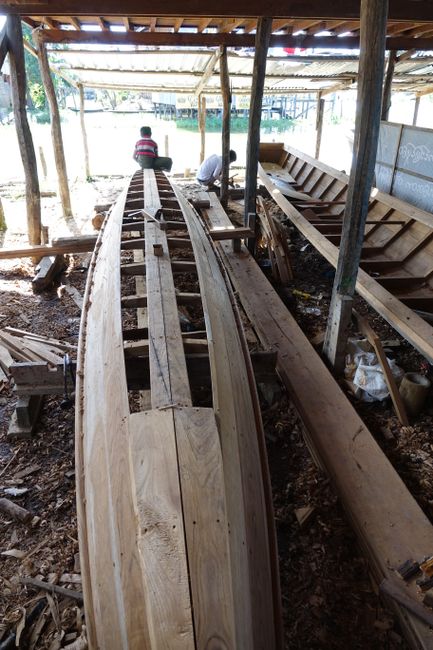
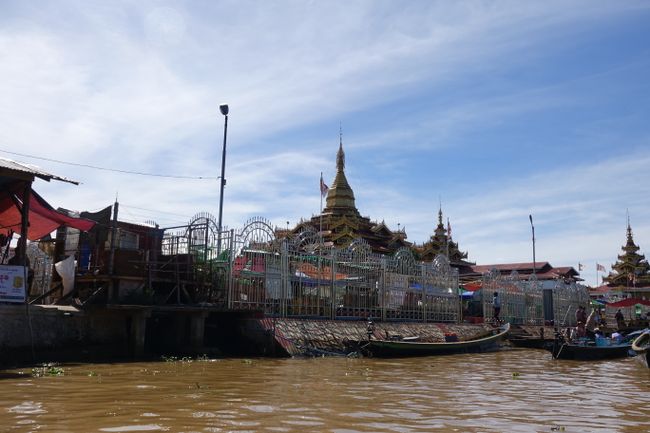
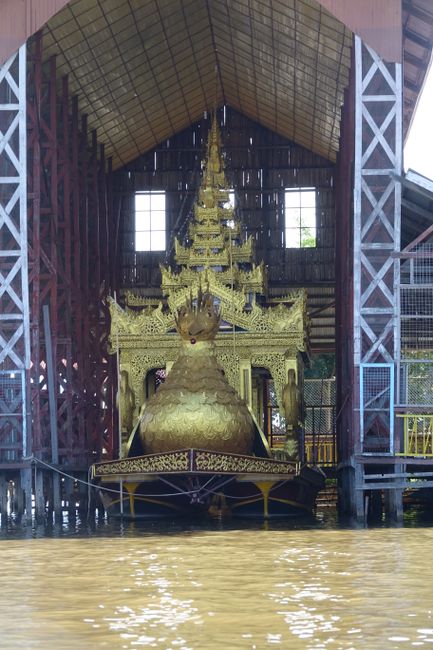
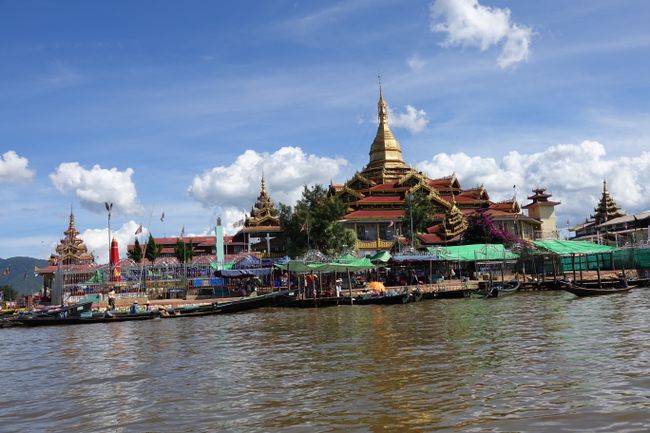
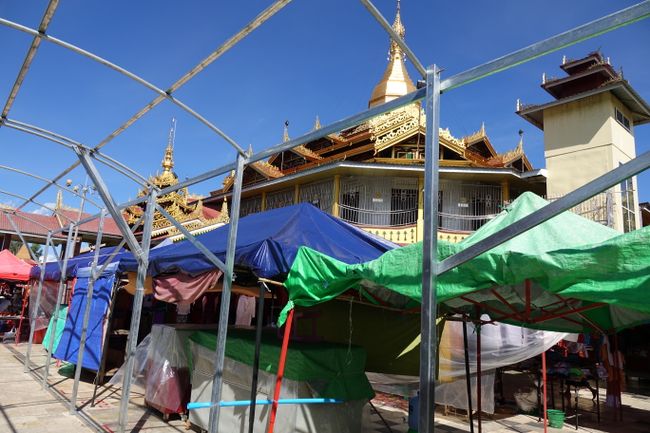
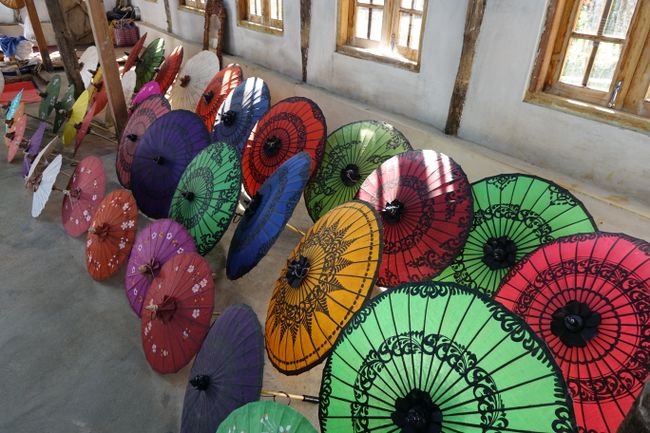
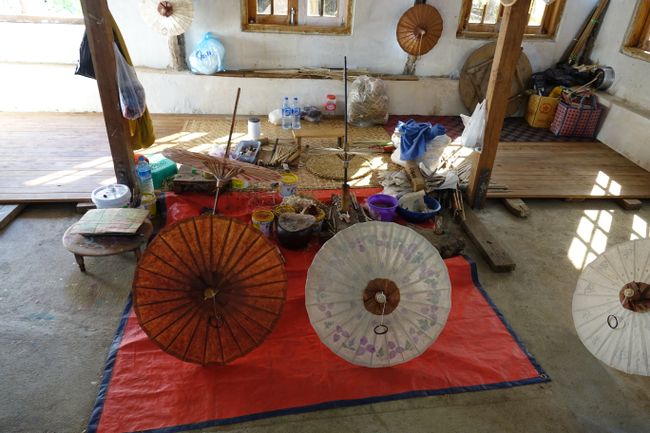
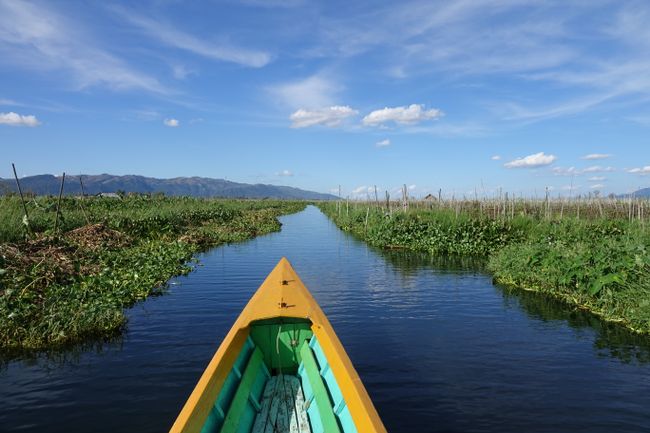
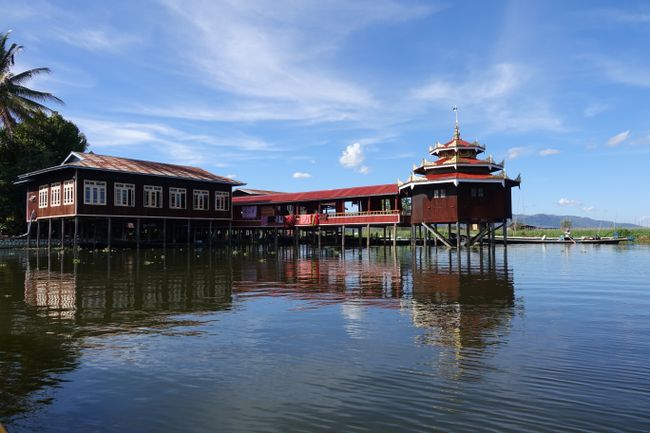
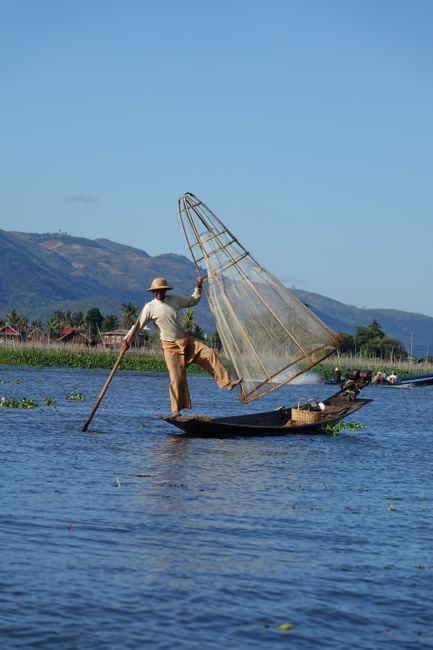
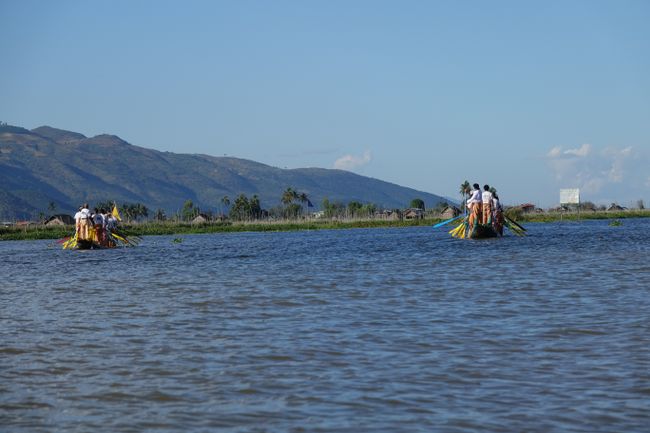
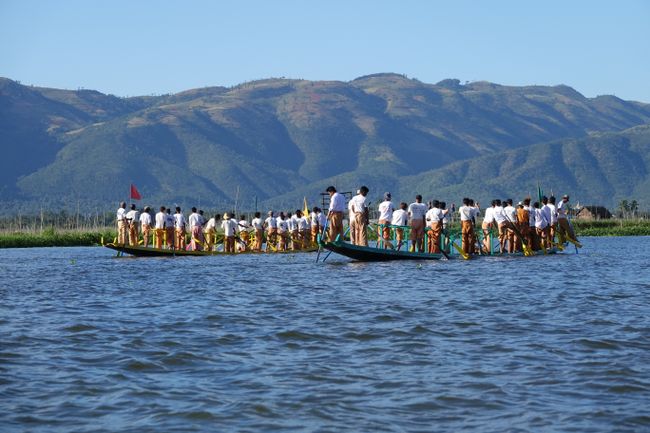
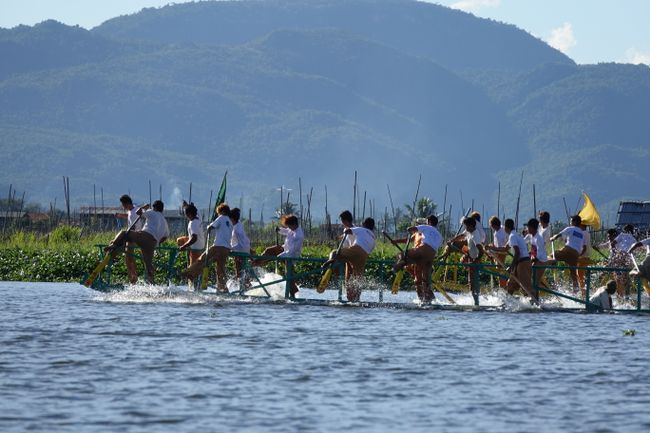
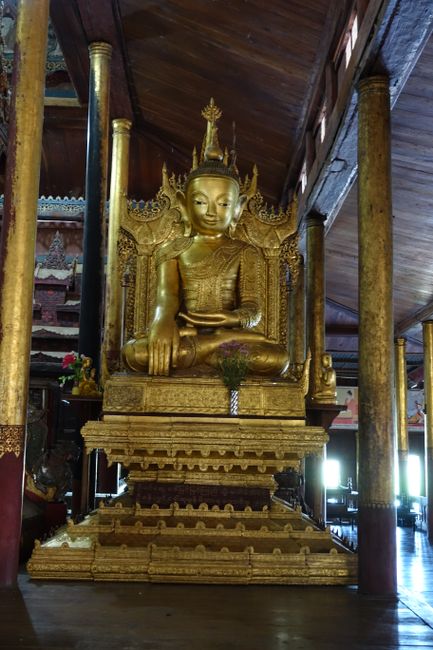
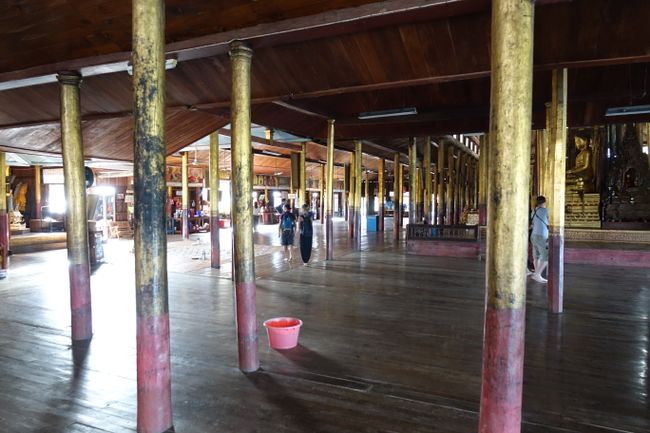
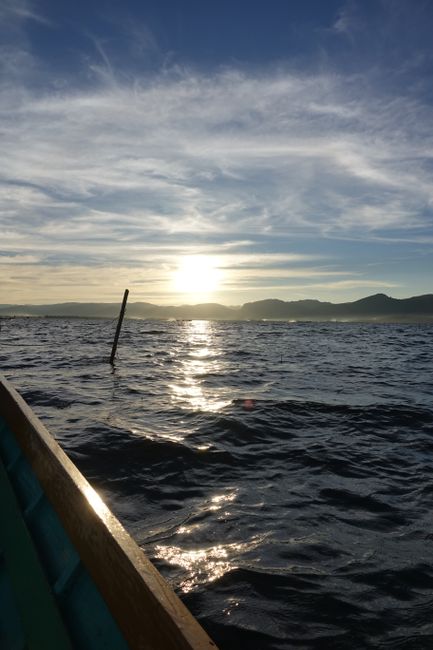
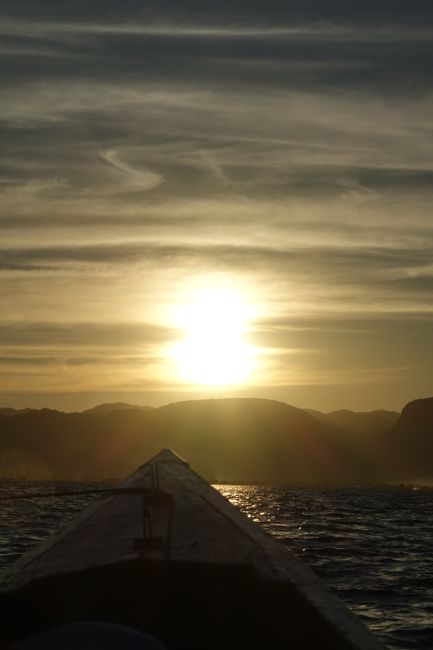
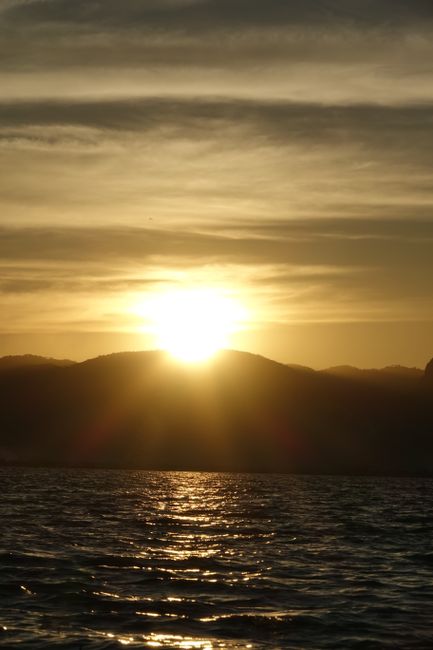
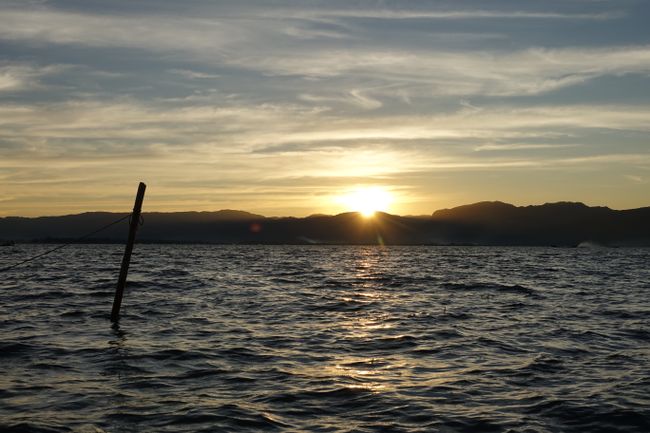
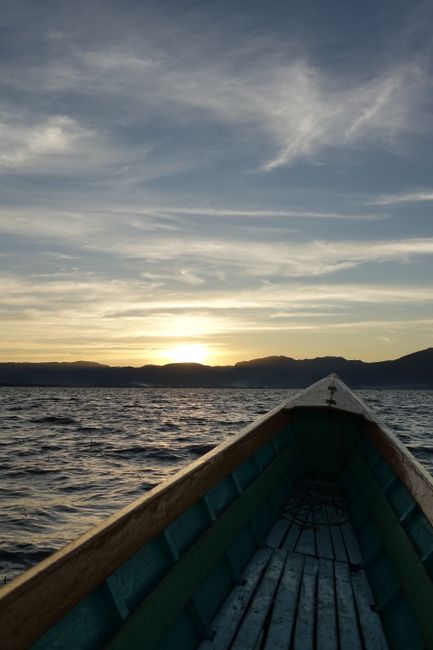
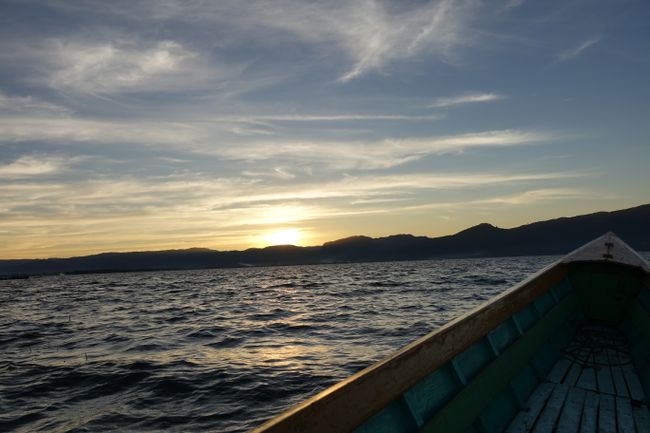
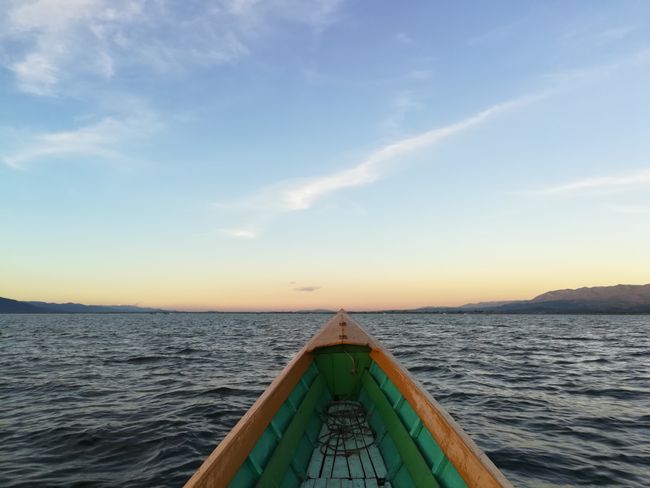
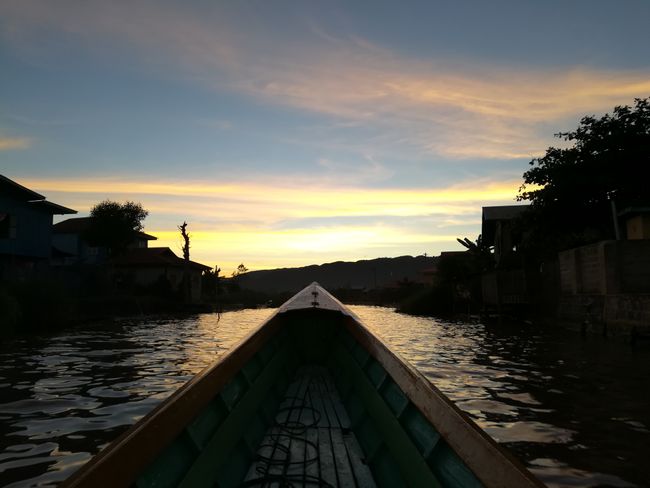
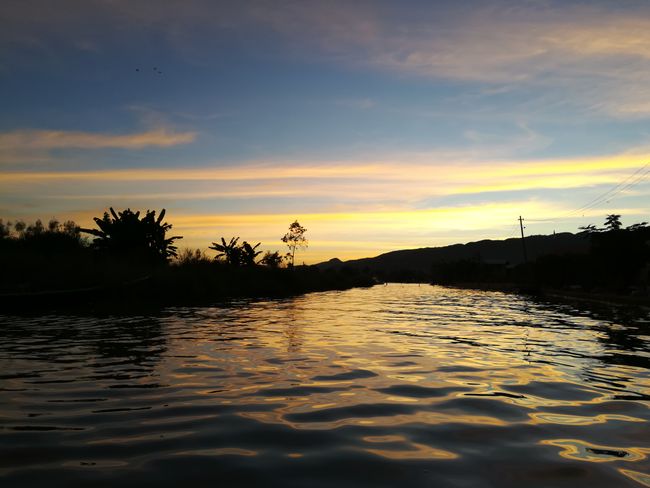
Fa'asoa ile Newsletter
After a good and hearty breakfast, I set out to find a boat to explore Inlay Lake. I quickly found a boatman who would take me around the lake for a good price. We went to his house, where his boat was parked, on his moped.

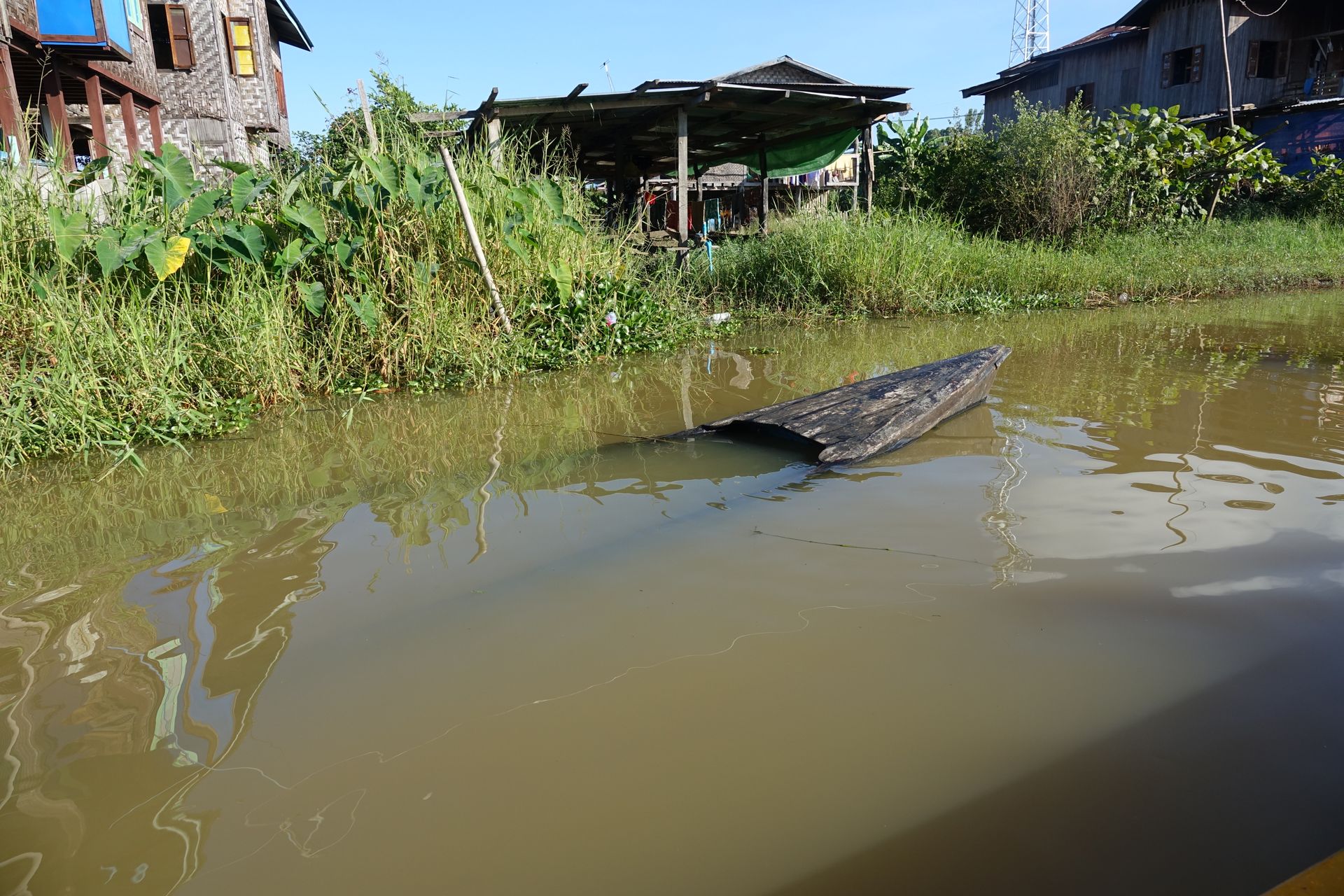
After he fueled up the boat, we set off.

The city of Inlay is connected to Inlay Lake by a river. We headed towards the lake on this river.

When we arrived at the lake, I could already see the first fishermen who were fishing in a traditional way. The spinning technique is especially unique. The paddle is wrapped around one leg and pressed against the body, leaving both hands free to spread the nets. The traditional fishermen used not nets, but a kind of basket to catch the fish from the water. However, no fishermen fish in this way anymore, they only demonstrate their skills for tourists.

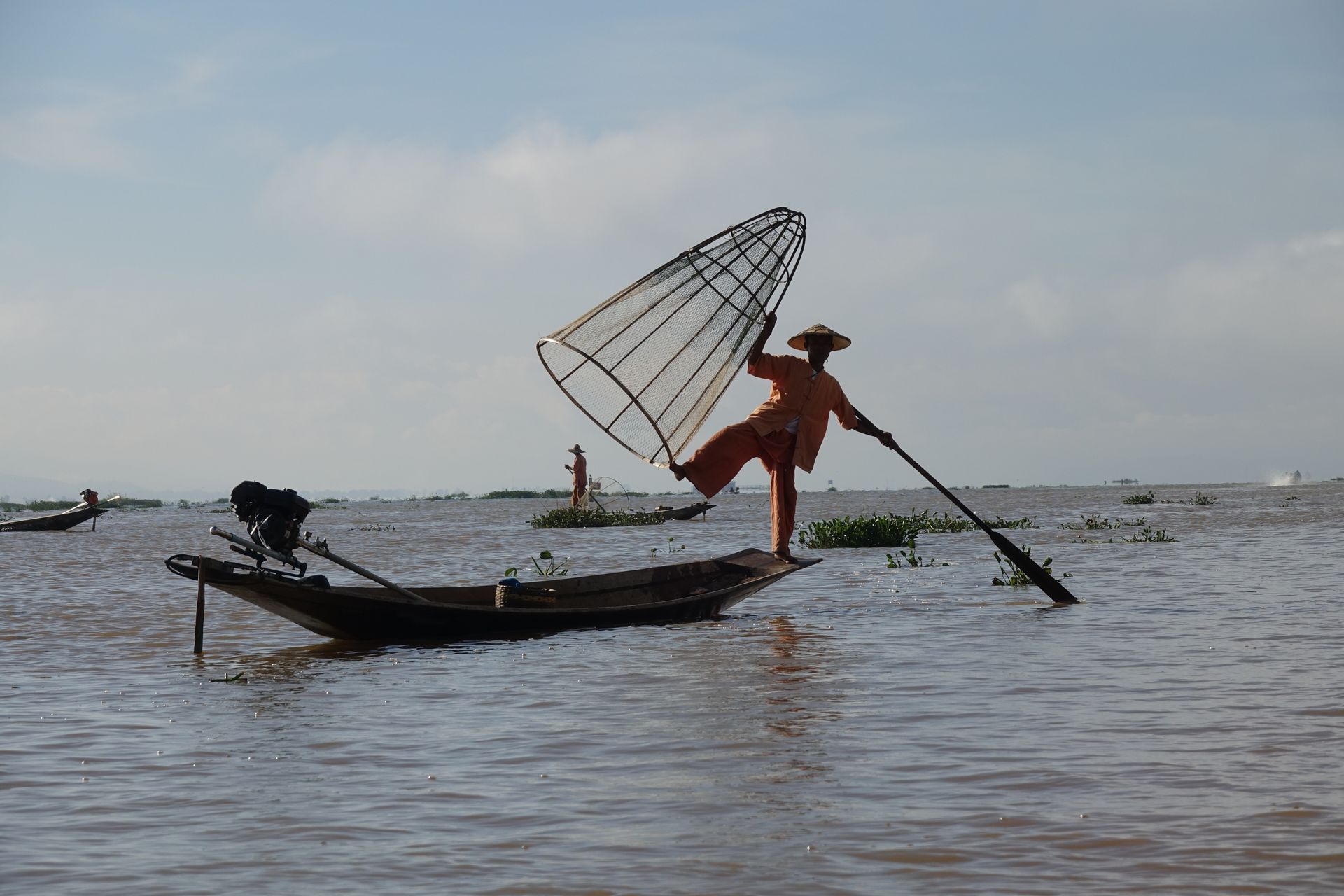


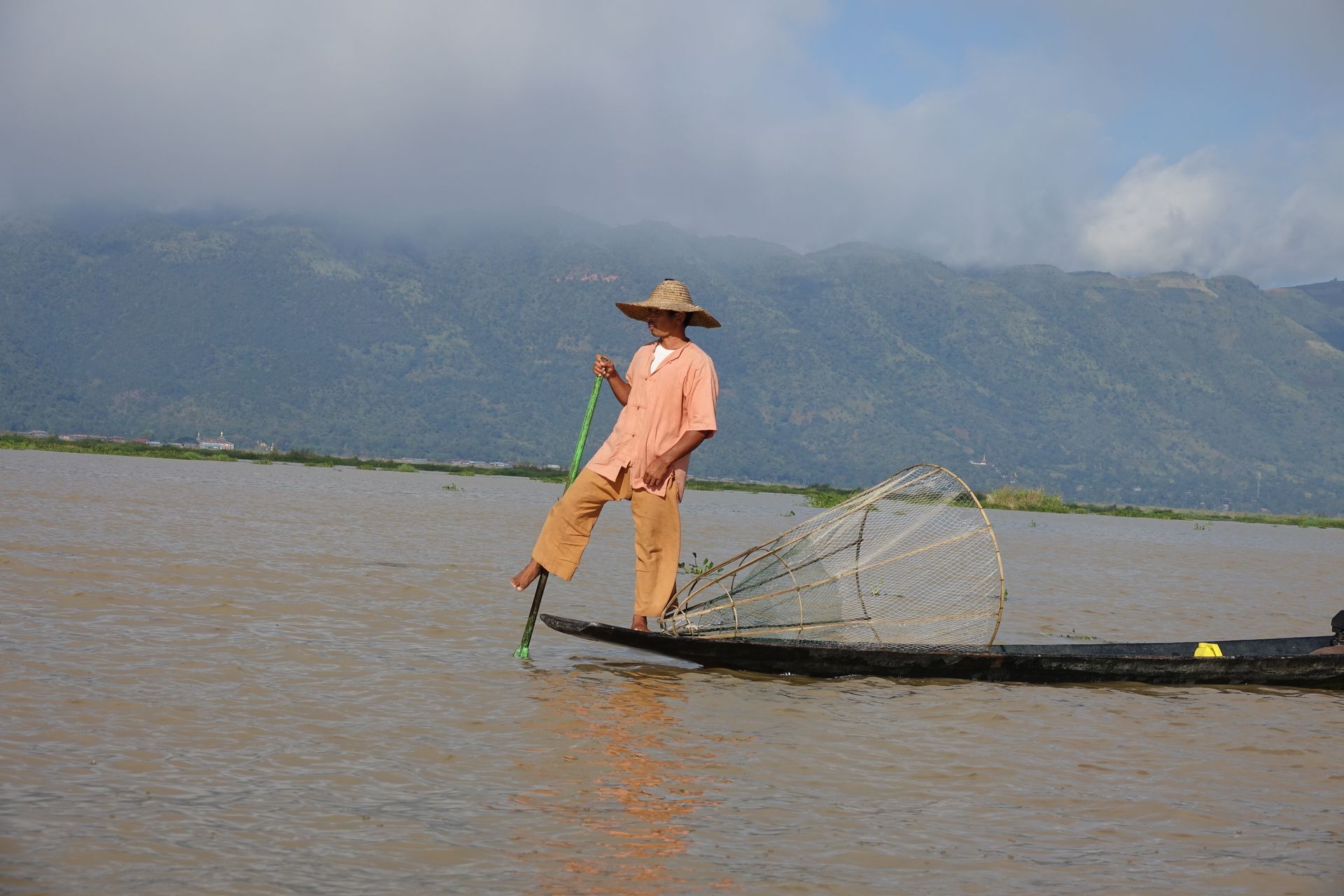


After passing the traditional fishermen, we saw several fishermen using nets, but still using the same spinning technique.
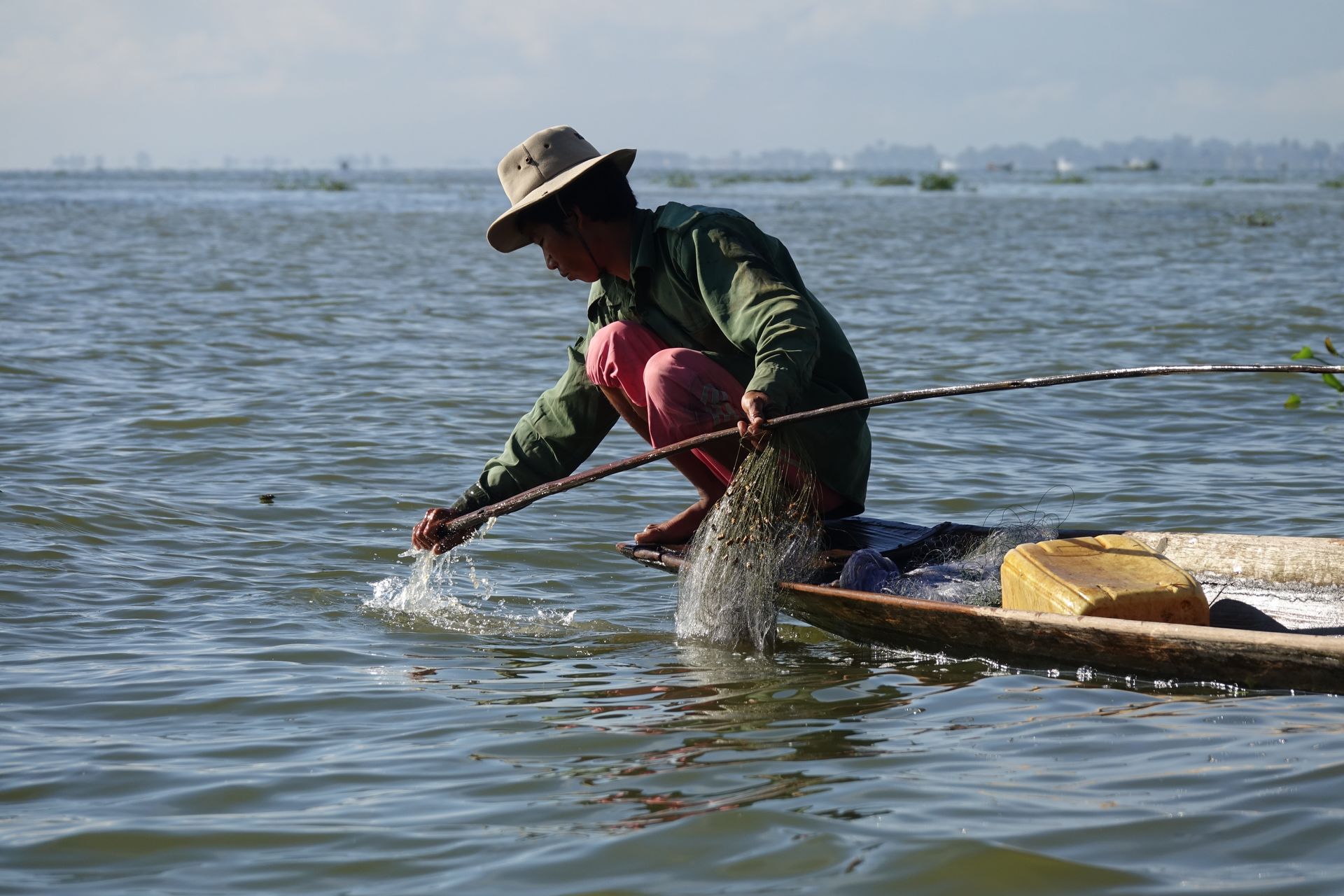

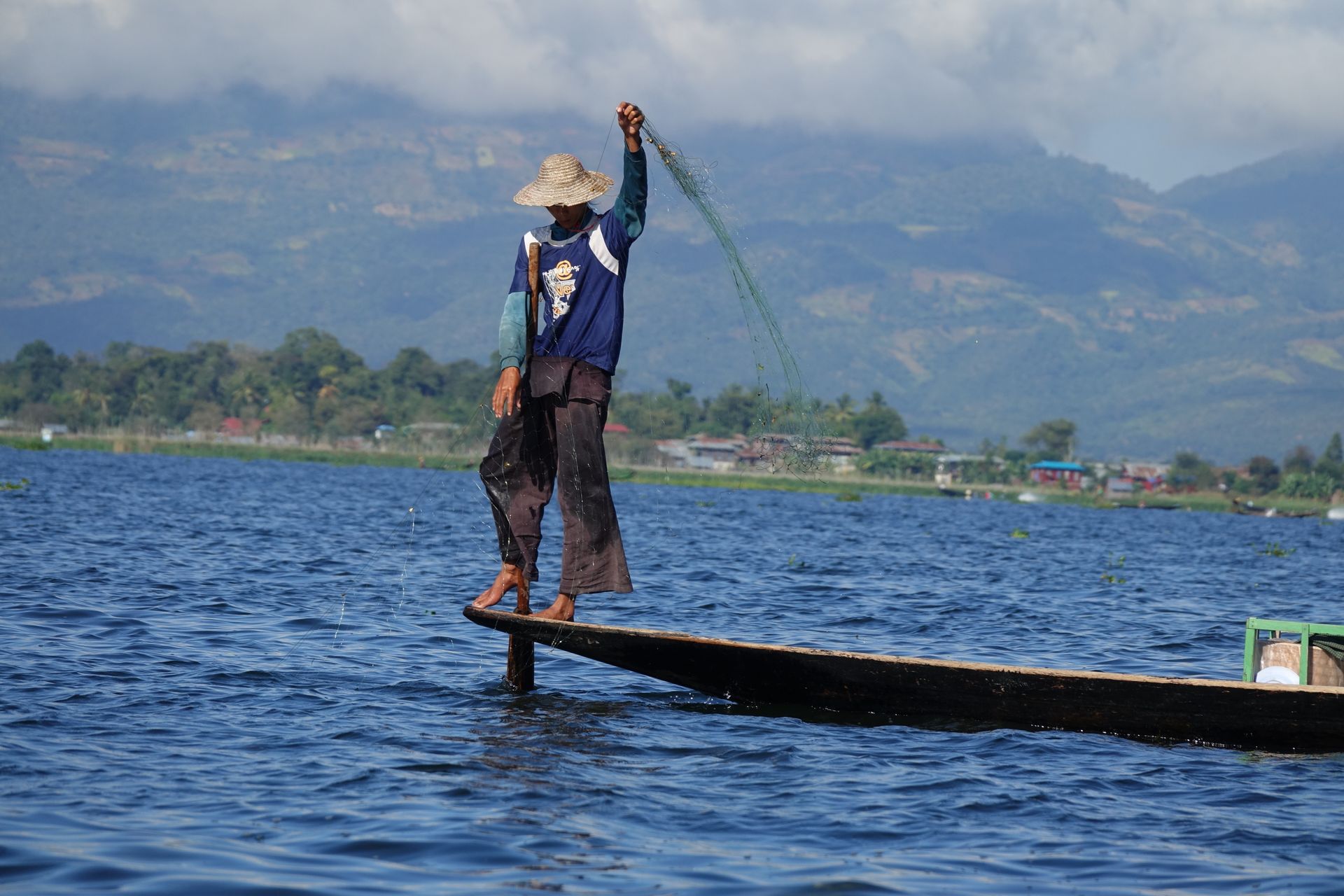
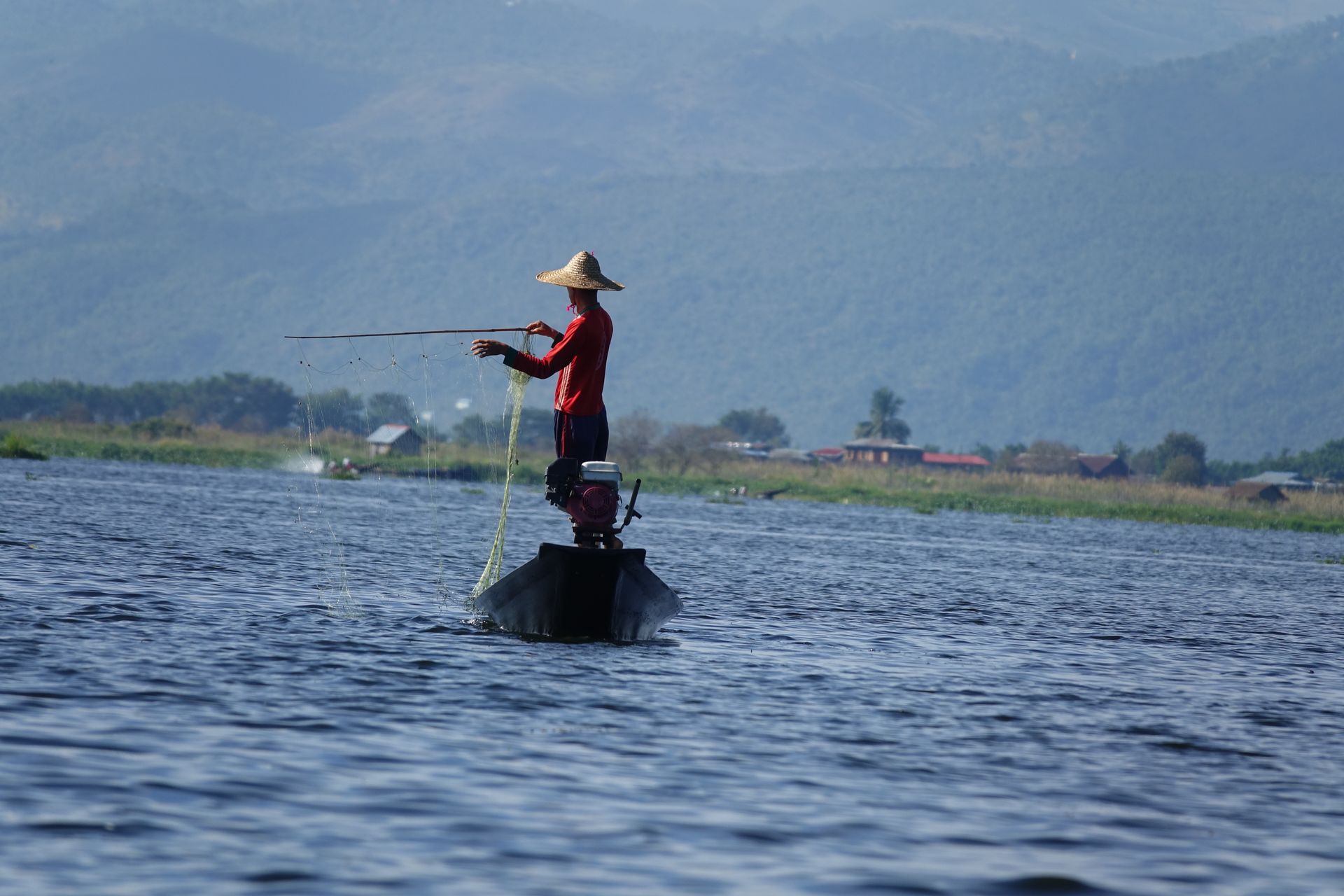

Seaweed harvesting was also being done diligently, filling the boats almost to sinking.
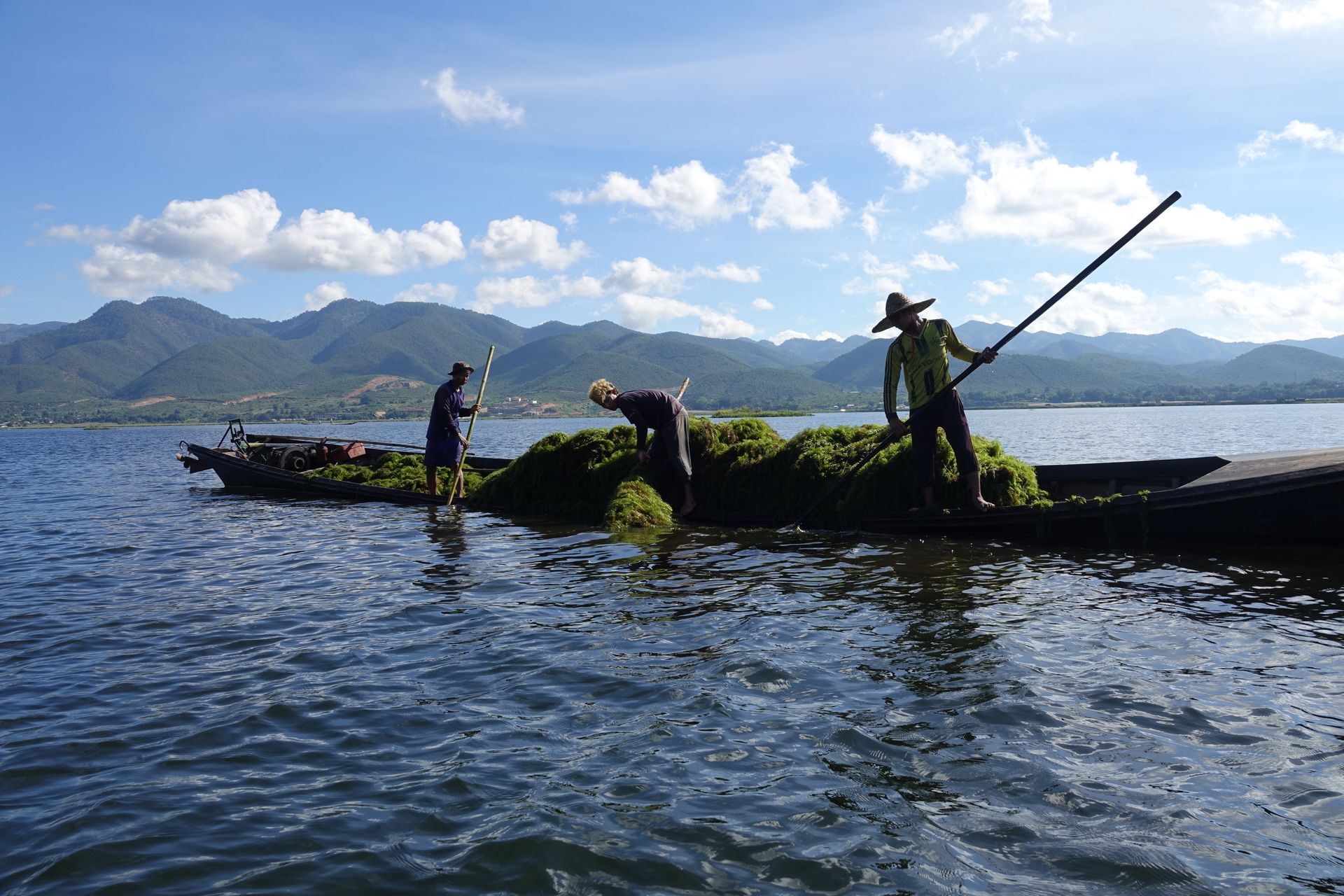
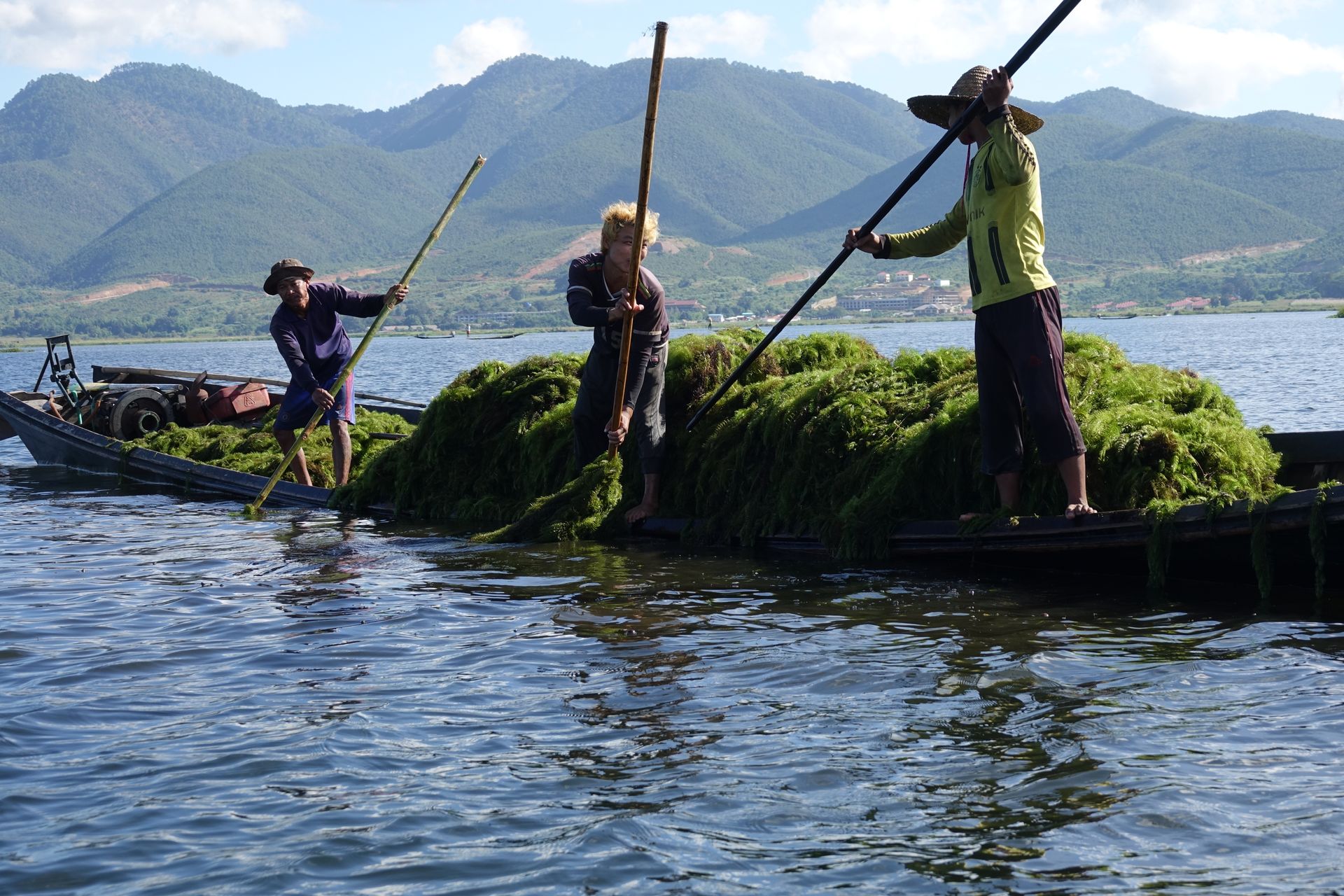
First, we visited the floating garden. The vegetable gardens, mostly tomatoes, were built on the lake. Narrow pathways were built up and the plants adapted to the new environment. Farmers harvest and cultivate the plants from their boats. Small huts on stilts serve as storage areas.


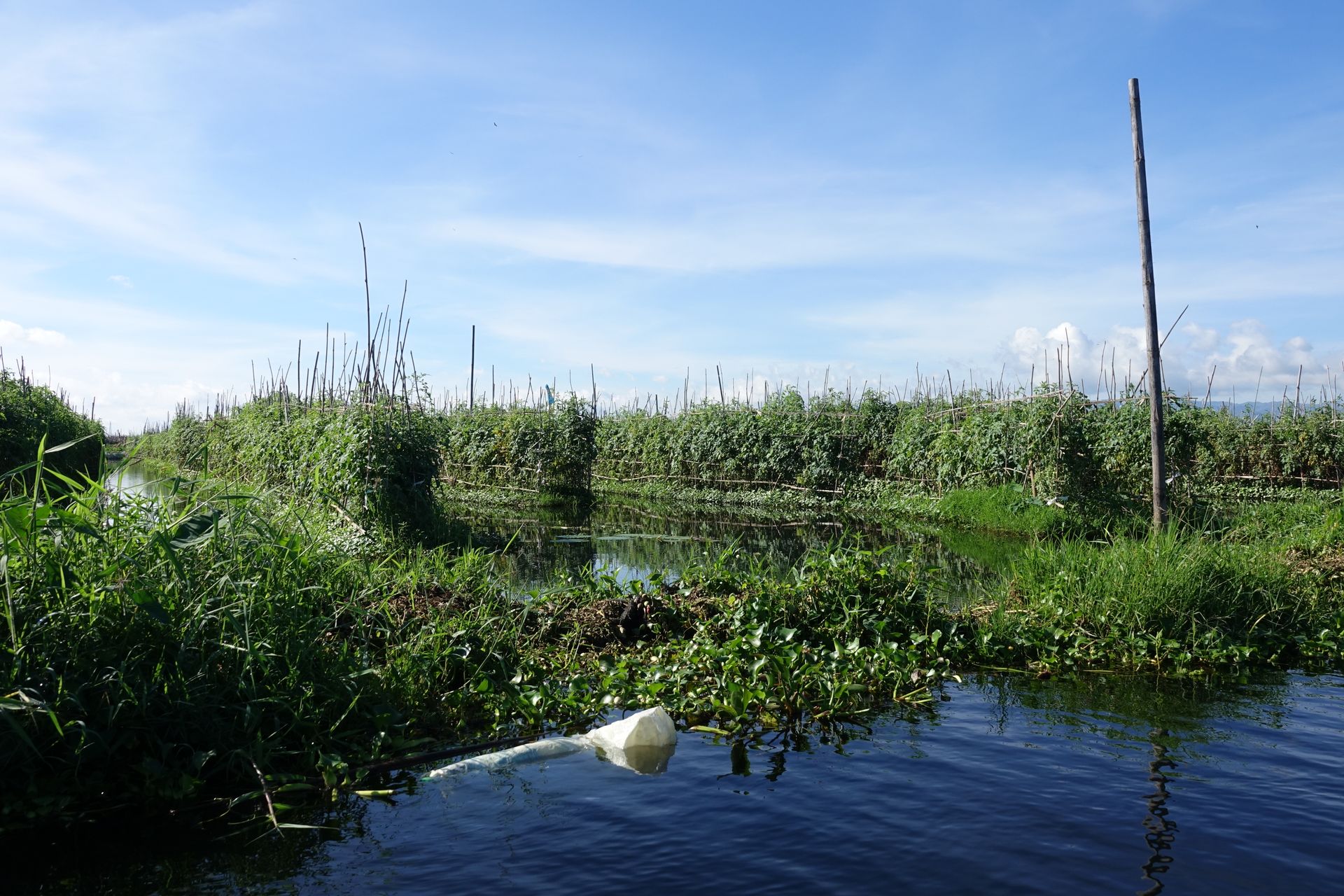



After the floating garden, we went to the floating village. The village was completely built on stilts, like the pile dwellings of the past. It was so cool to glide through the "streets" in the boat, with various types of houses towering on stilts on both sides. I really liked it.

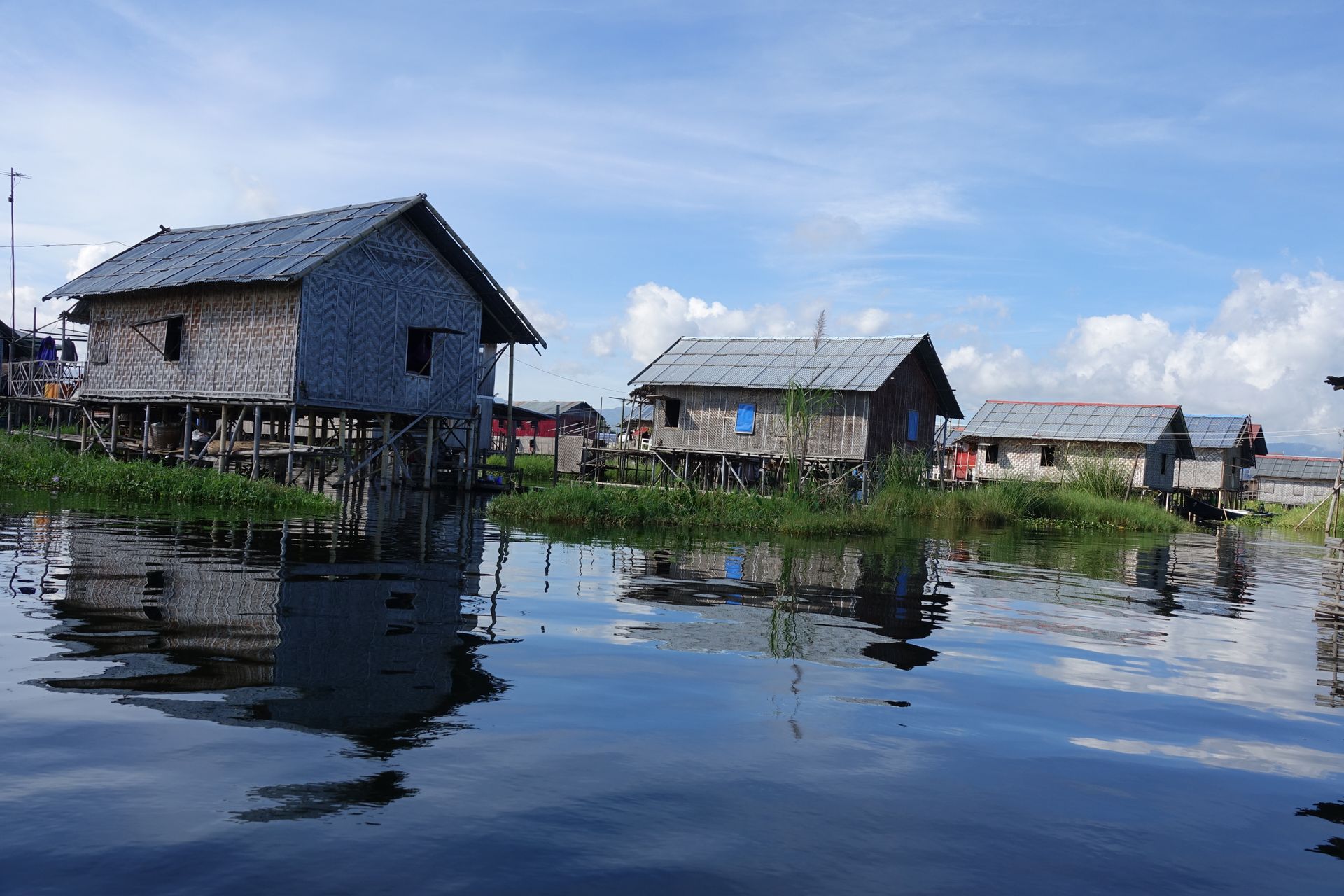




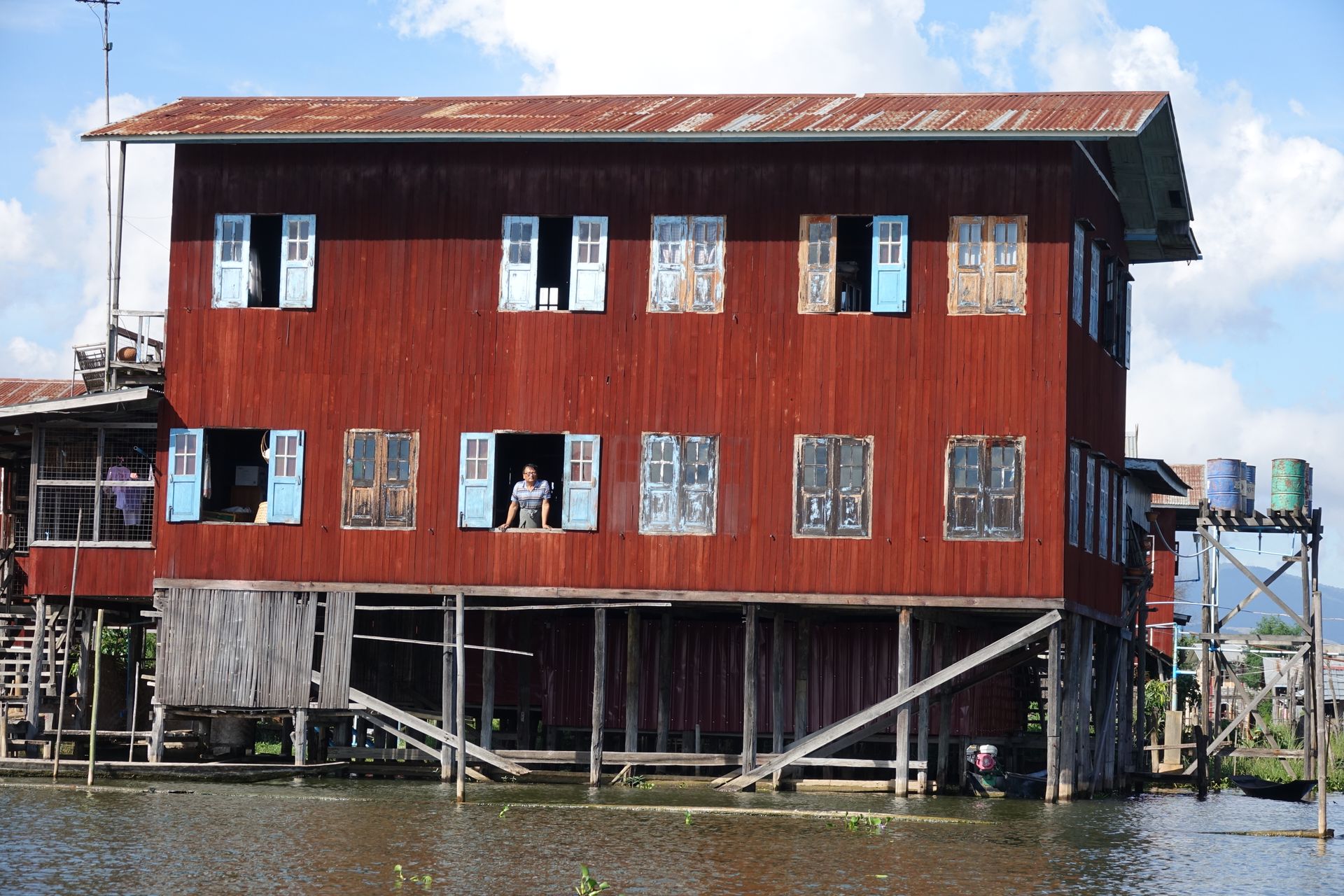
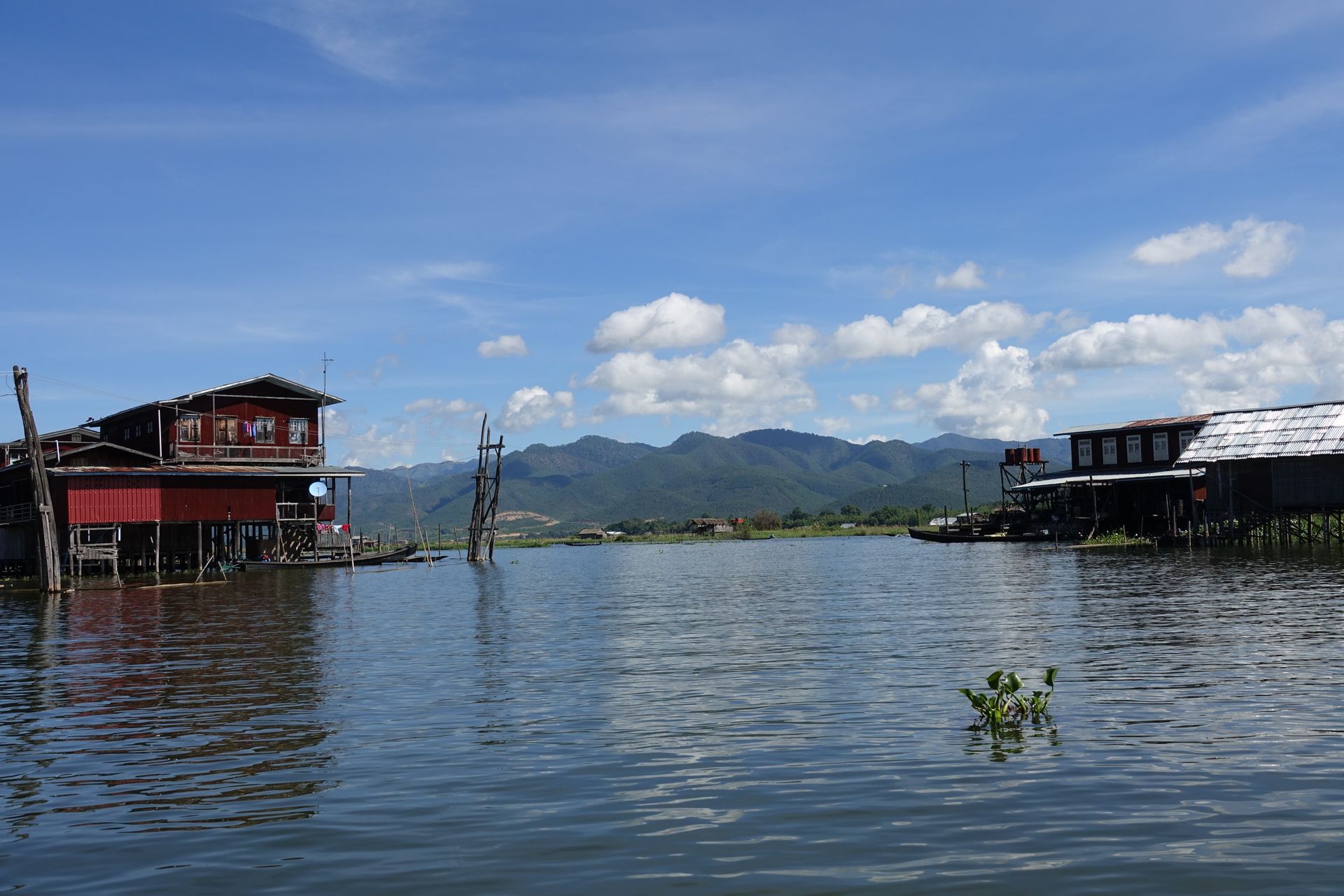
In the village, we stopped at a weaving workshop. The workshop produces clothes made of wool and silk, as well as scarves made of lotus silk. I was shown how the "yarn" is obtained from lotus plant stems. It is a quite elaborate and time-consuming process. The scarves are accordingly quite expensive, around $280. After the demonstration of lotus silk production, I was shown the weaving workshop where all the clothes are produced. A visit to the shop was also part of the tour, of course.



In Myanmar, they don't really discourage smoking, but rather promote it. Not with cigarettes as we know them, but with Myanmar cigars. Tobacco rolled in a banana leaf with a grain filter. Most hostels offer them for free and you can help yourself. I visited a factory for these cigars, where they showed me how they are rolled and the different varieties available. Of course, I got to try each variety.


I tried to roll my own cigar, which seemed to amuse the women who did it every day. Admittedly, I was pretty bad and slow. In the time it took me to roll one cigar, the woman who showed me had rolled at least 7 cigars. But I eventually managed to do it.


Next, we visited an iron smith family. Since I wasn't really interested in that, I had tea with my boatman, which is offered for free everywhere.

Communication with him was not very easy as he hardly spoke any English. But somehow, everything worked out.
From the iron smith, we went to a jewelry family that produced silver jewelry. I was offered a cup of tea and then they explained and showed me how silver is obtained and processed. A visit to the shops was also included in the tour.

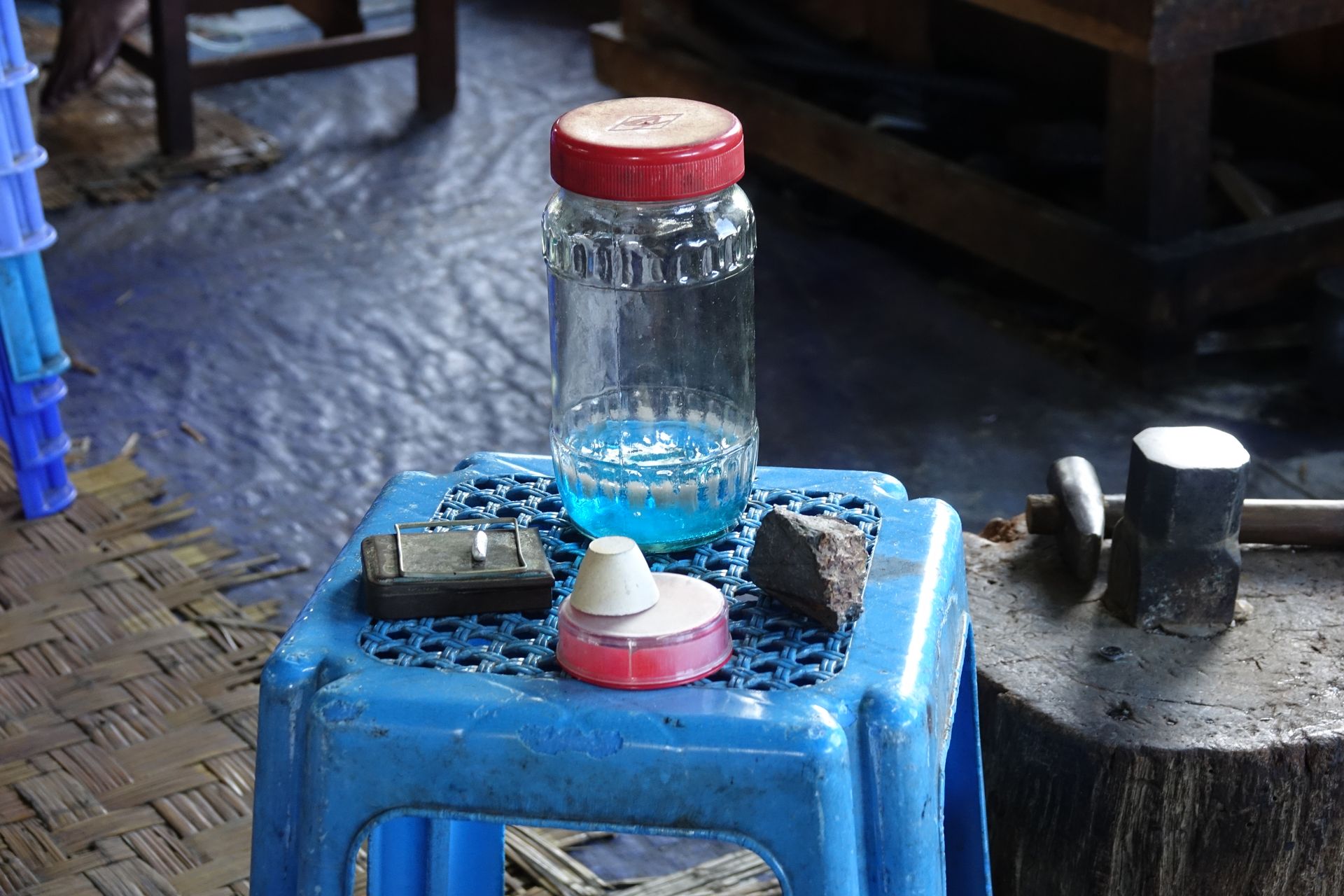

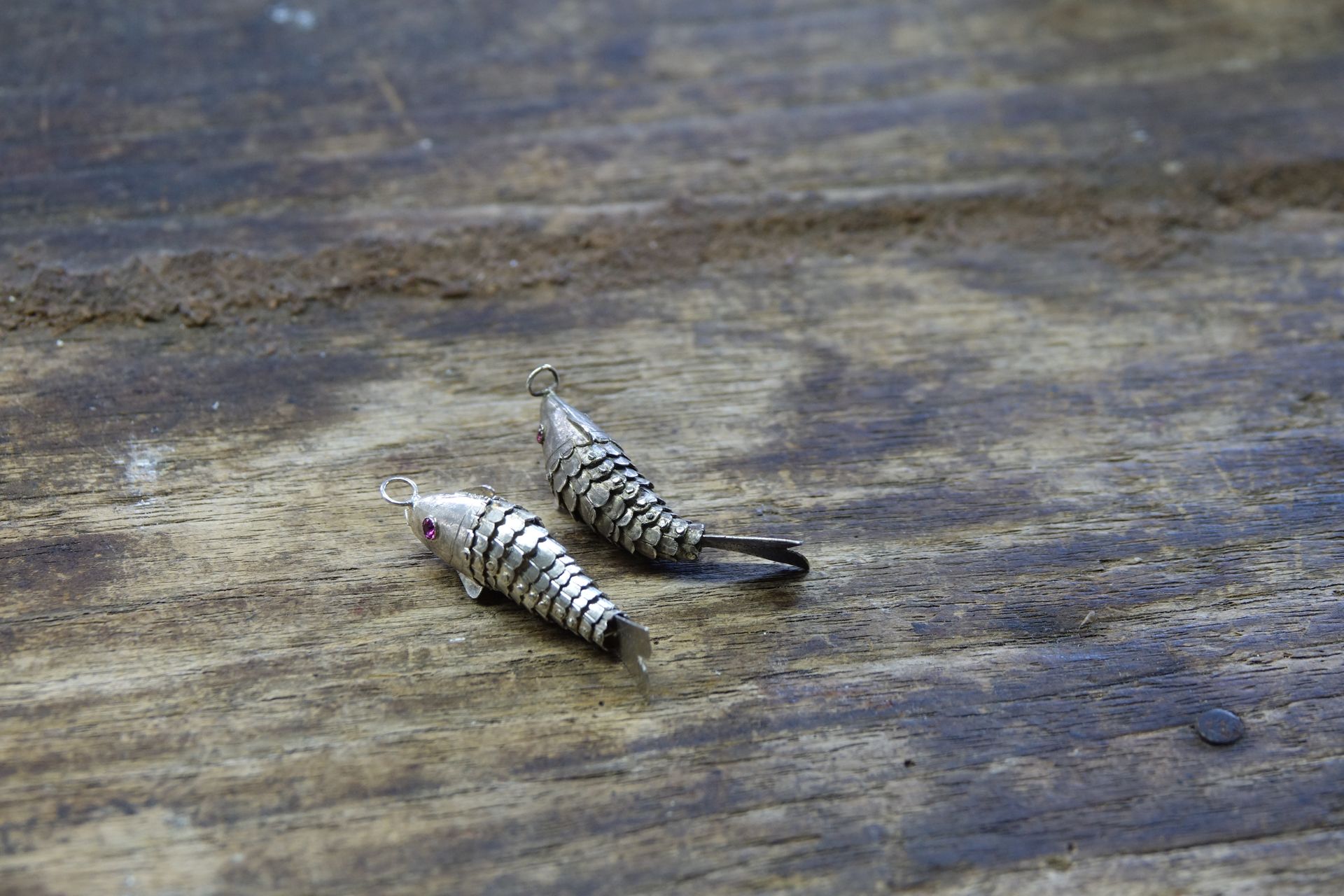
After visiting a boat builder,
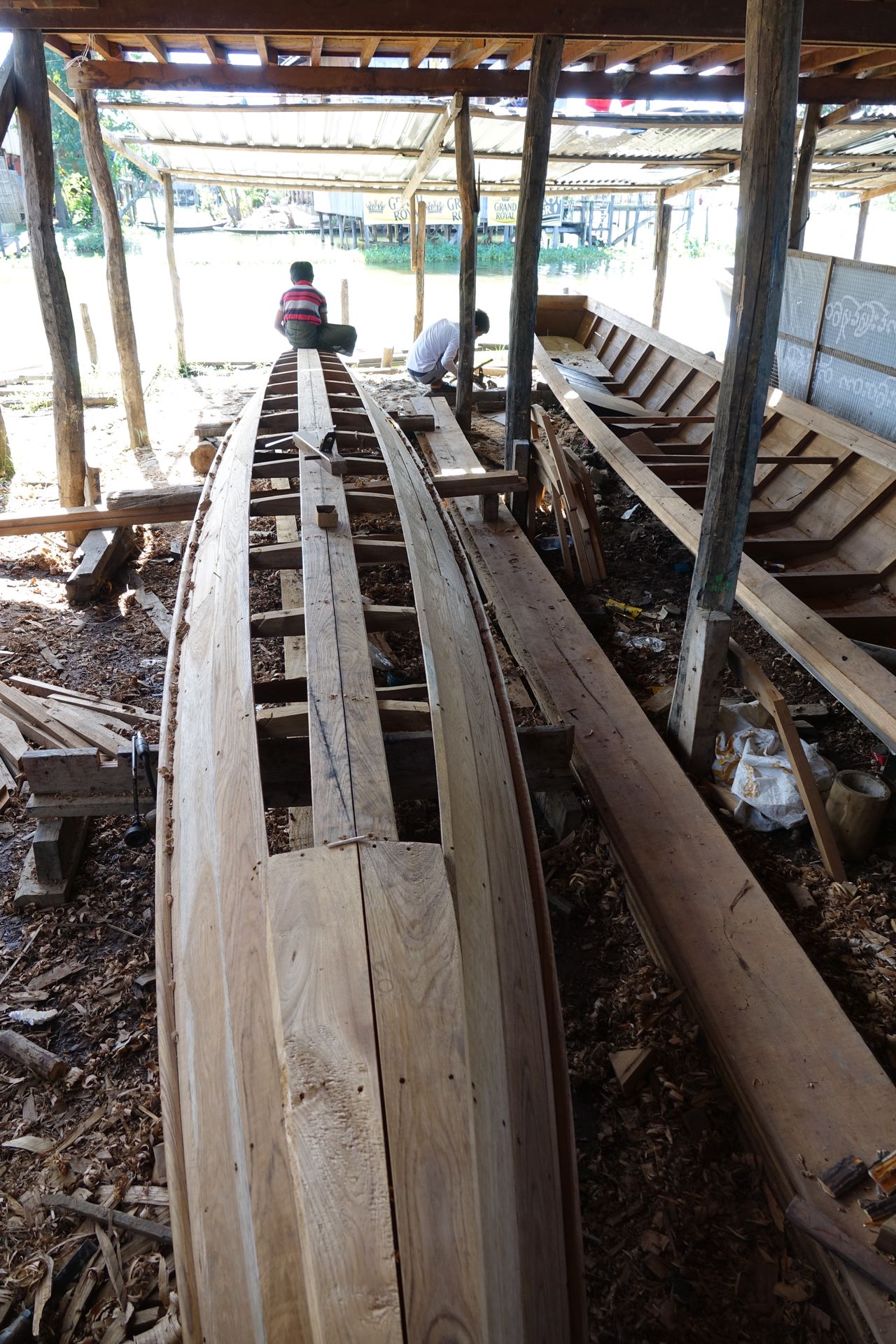
we passed by a pagoda, which of course cannot be missing in a village, and stopped for lunch at a restaurant.

In the afternoon, I visited a monastery. Unfortunately, the pagoda was more of a market for tourists than a sacred place.
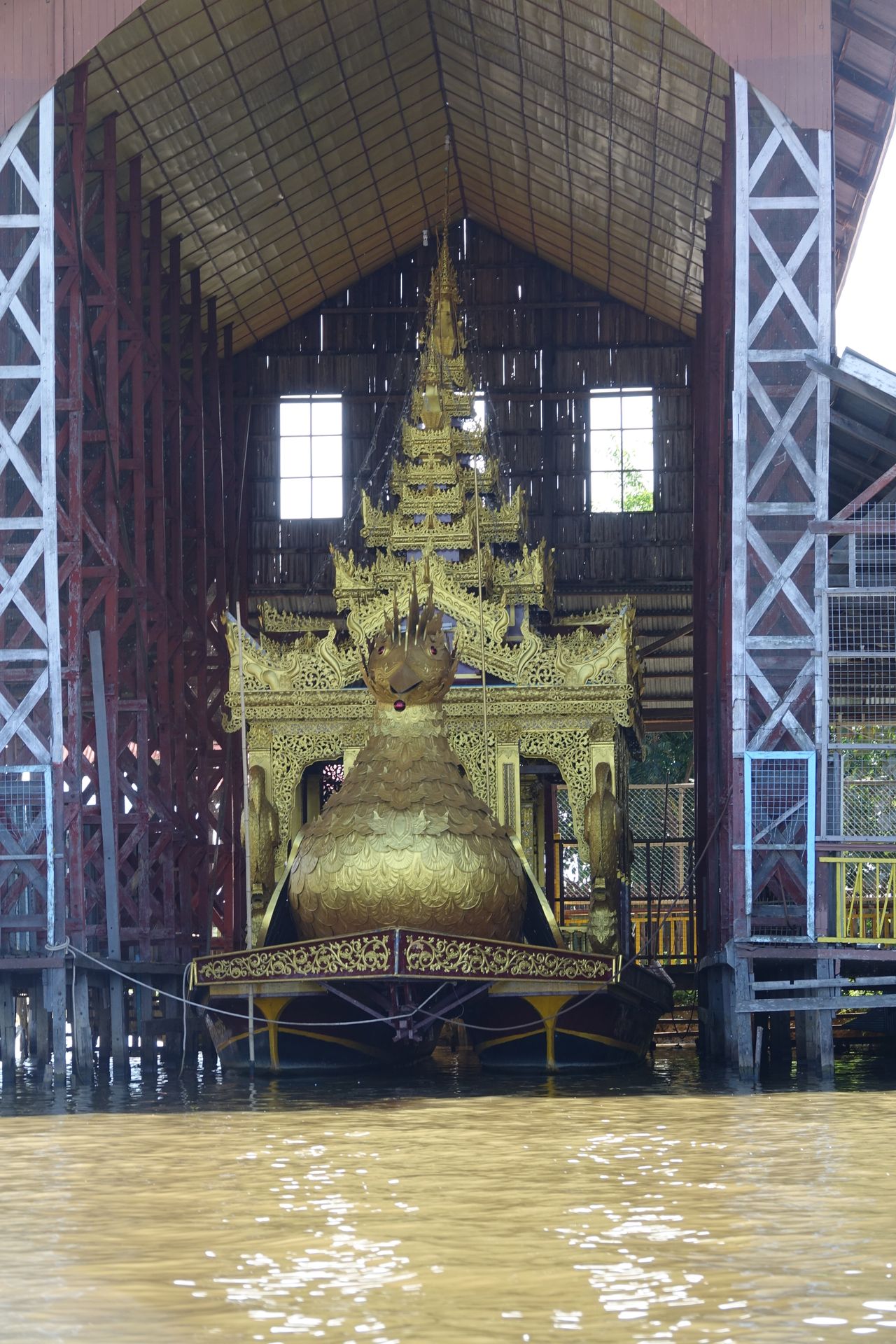

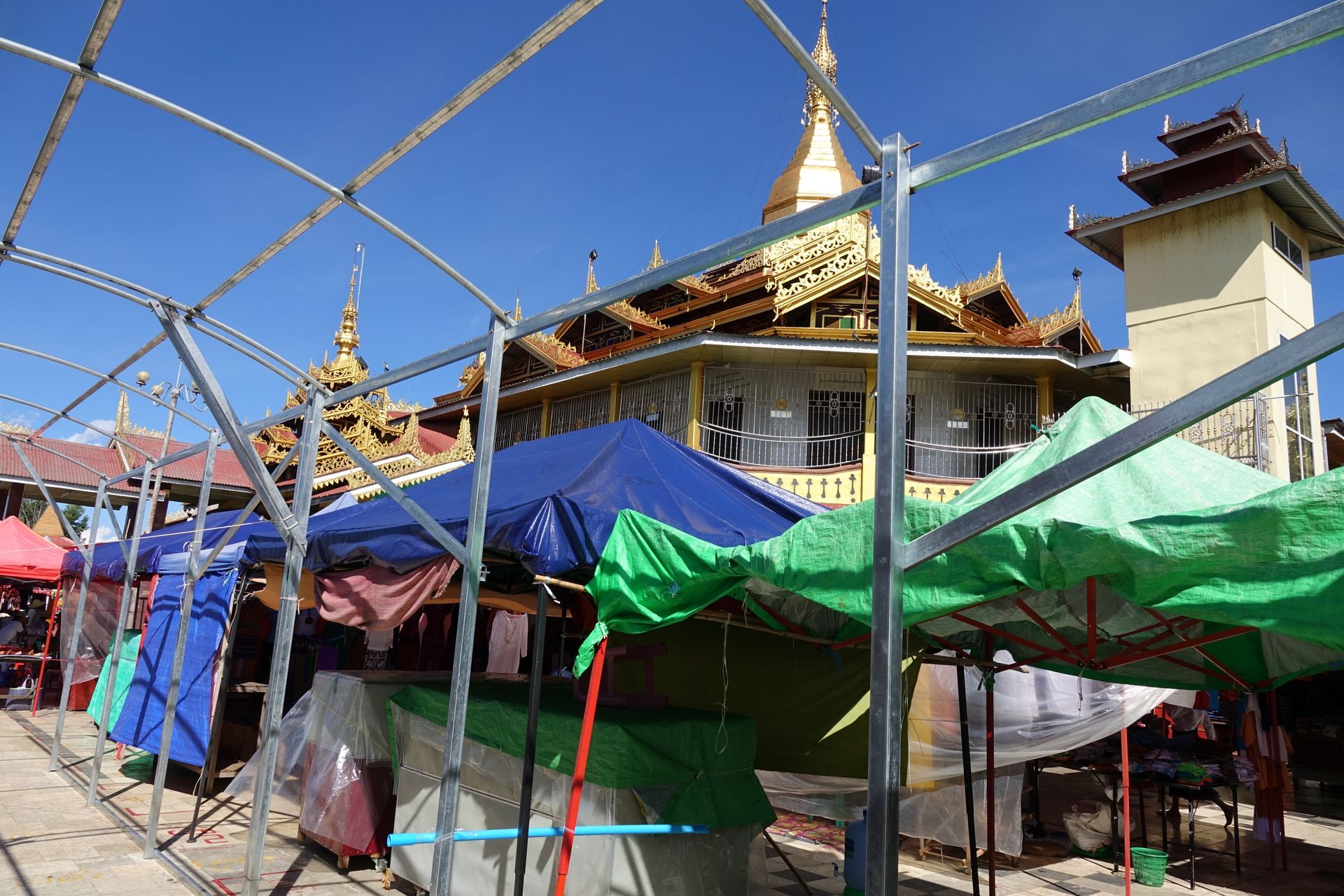
So it was just a short visit. After the monastery, we visited other craftsmen, such as a parasol maker.


We ended with another monastery, which fortunately wasn't cluttered with market stalls.



Then it was almost time for sunset. On the way back through the floating garden, we went to a good spot on the lake for the sunset.
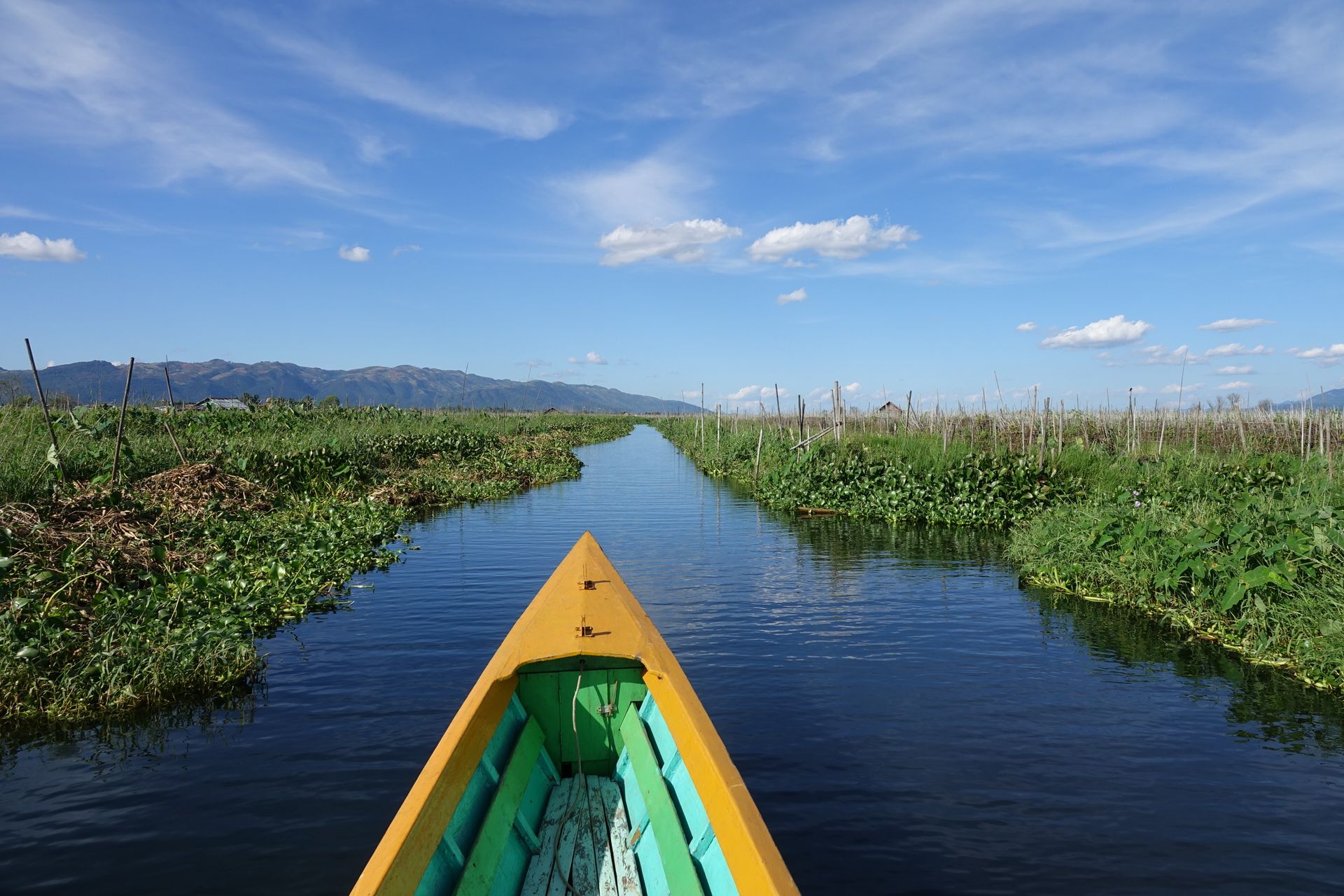

On the way, we passed by a small regatta between two rowing boats. They were rowing in the classic antique style.

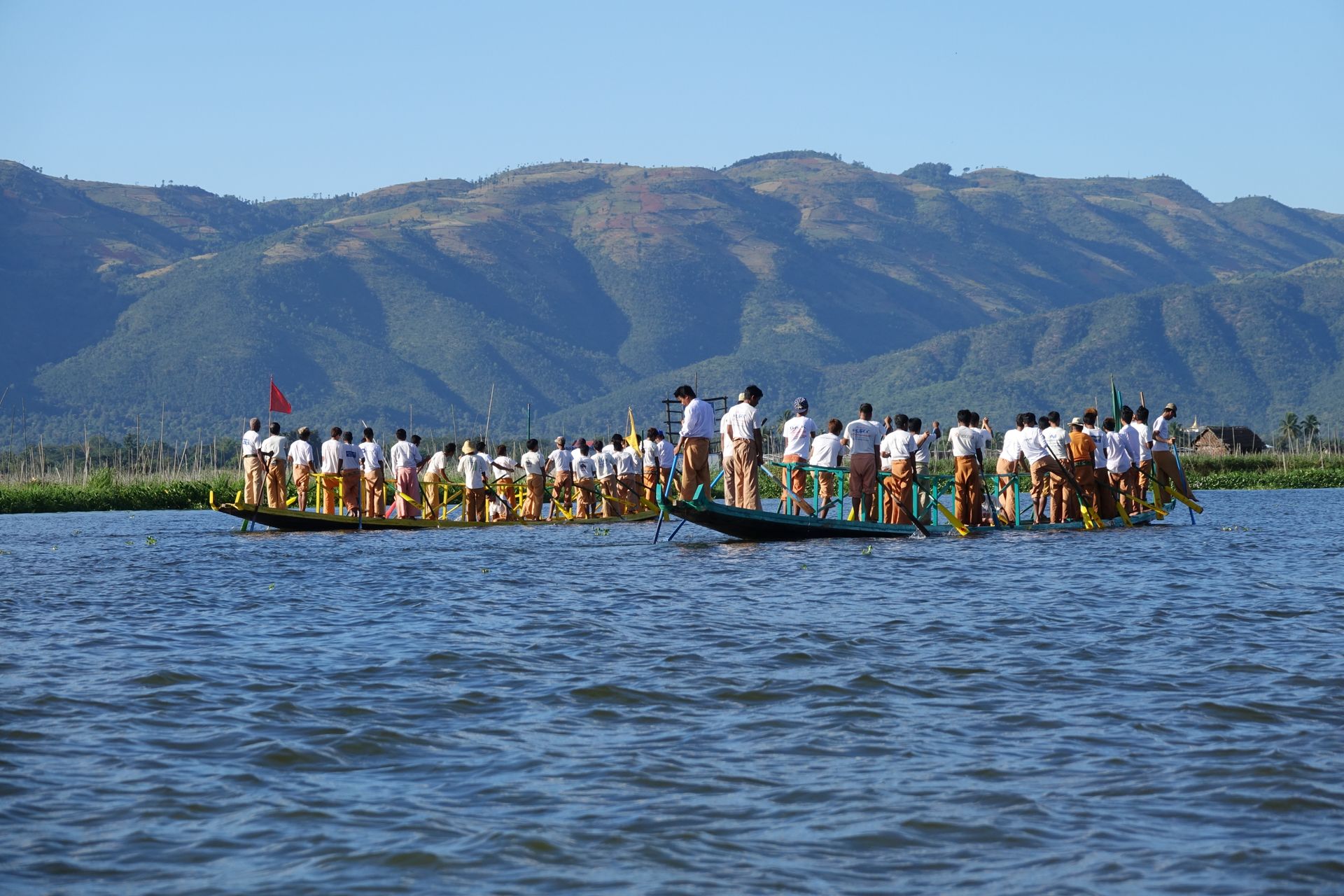

The sunset on the lake was simply amazing and beautiful to watch.


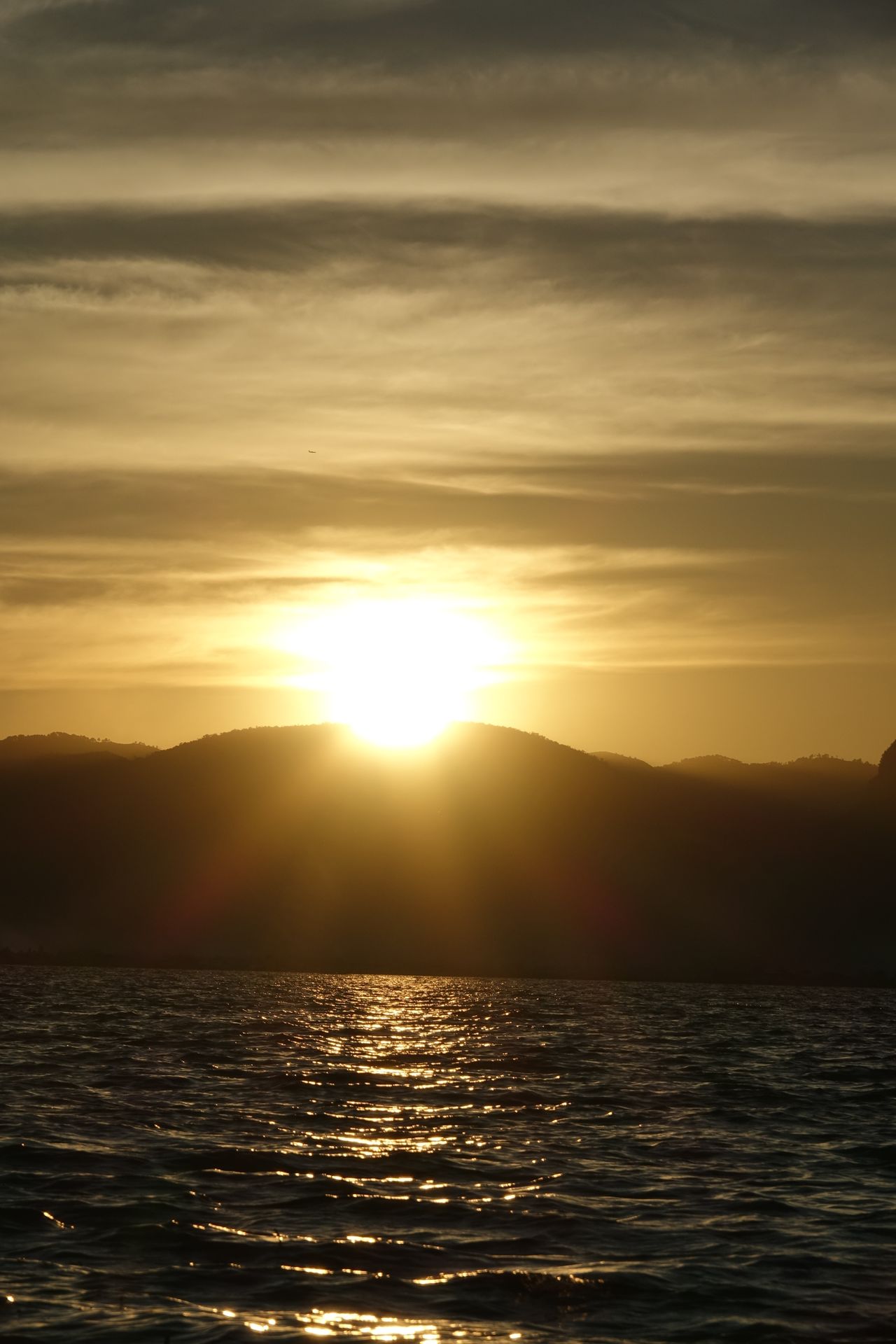
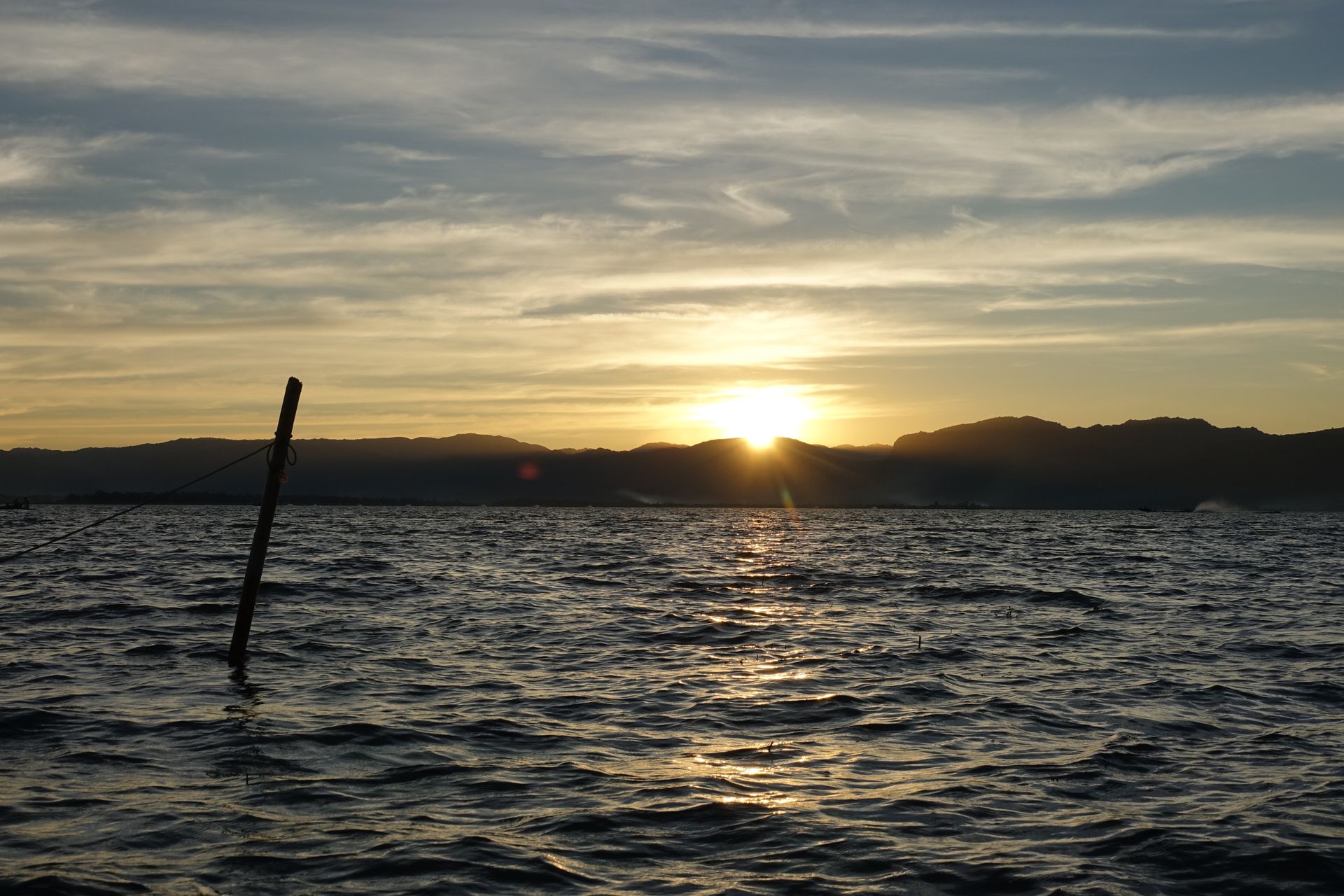


As night fell, I was back at my hostel.
After a refreshing shower, I went out to eat with two others from the hostel. Our destination was a special Indian restaurant. The owner is the biggest Eminem fan in Myanmar. He dresses like Eminem, talks like Eminem, and of course, only Eminem music plays in the background. He is a really funny guy, and his restaurant is always full because everyone talks about him. We were lucky to get a seat. It was a really fun evening.
Fa'asoa ile Newsletter
Tali
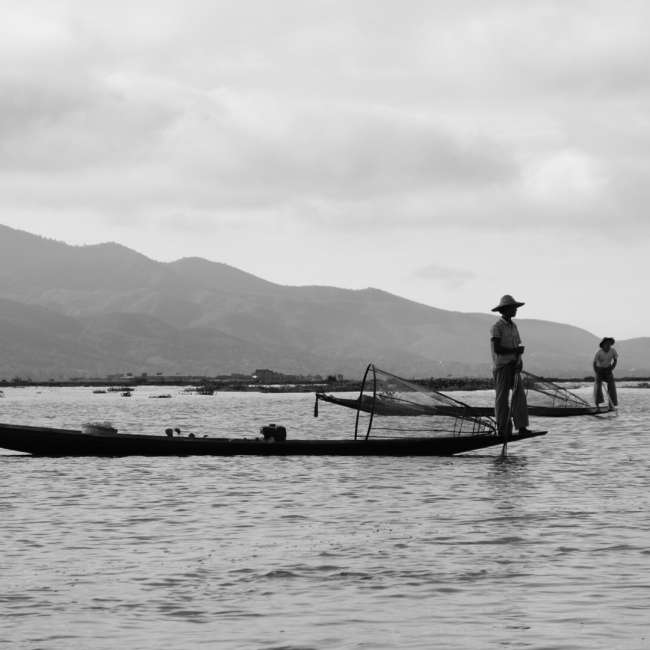
Lipoti o femalagaaiga Myanmar
